What Are the Pros and Cons of Traveling Abroad?
Find Out Whether International Travel Is Right for You
Visiting another country can reward you in many ways, but you will also encounter issues you would not face at home. Here are some points to consider as you think about traveling abroad.

What's in It for Me?
- History - There is something special about standing where history happened. Whether you want to take a photo from Catherine the Great’s doorstep at St. Petersburg’s Winter Palace or walk along the Great Wall of China, there is an unmistakable thrill that comes from being where history was made.
- World Cultures - Some travelers want to immerse themselves in another culture, trying everything from local foods to traditional sports. If you would like to travel like a local, choose a “home base” and rent an apartment or cottage where you can buy groceries, take walks, experience festivals and hang out with the neighborhood denizens. You will come away feeling you have really learned about your chosen city or region.
- Food Adventures - For some vacationers, it’s all about the food. You might want to taste all the dishes you have seen on an episode of Bizarre Foods with Andrew Zimmern or learn how to make veal marsala. If culinary adventures appeal to you, consider combining your trip abroad with cooking lessons or a wine tasting tour.
- Sense of Accomplishment - Travel can be challenging if you are unfamiliar with the language, customs and cuisine of your destination country. For some travelers, that’s part of the fun. When you unscramble the dinner menu or finally board the right bus, you will feel an adrenaline rush and a sense of pride.
- Dream Destinations - Perhaps your grandfather told you stories about Lake Como or played Hawaiian traditional music for you, and those experiences inspired you to consider traveling abroad. If you can supply an answer to “I’ve always wanted to visit (blank) because..." in five seconds or less, consider crossing a border or two during your next trip.
- Learning Experiences - According to the American Society on Aging, your brain continues to make new cells and establish nerve connections throughout life. For this to happen, you must exercise your brain. Combining travel with learning experiences can keep your brain as healthy as the rest of your body.
- Wonders of the World - Some travelers like to make lists of related destinations – such as the New 7 Wonders Of the World – and visit each place on their list. If you are looking for a worldwide travel project and climbing the Seven Summits isn’t your thing, a visit to each of the New 7 Wonders of the World could be just the project you’re looking for.
- Family Connections - Many travelers decide to visit their ancestors’ homeland on their first trip abroad. Genealogy is an extremely popular hobby, and there is nothing quite like doing your research on-scene . You might see the buildings your ancestors lived in or meet a distant cousin. Finding new information about your ancestors and immersing yourself in their culture will add new dimensions to your family history research.
What Problems Could I Encounter While Traveling Abroad?
- Language Difficulties - Learning a few words in another language can be a daunting experience. If language barriers bother you, but you would still like to visit another country, consider traveling with a tour group.
- Increased Cost - Transportation costs add up quickly. If you want to travel to another country, you may discover that transportation costs use up a large portion of your budget. Save money by booking a tour or cruise through a travel agent who has access to promotions and discounts.
- Poor Accessibility - Some destinations are not wheelchair-friendly. Elevators are narrow, important places do not have elevators or wheelchair ramps and curbs lack cuts. Subway travel might prove difficult – long staircases are a hallmark of subway stations – so you will need to check on elevator availability and learn how to request assistance before you travel. Check with a travel agent who specializes in accessible travel to find the best destinations for persons with your particular disability.
- Dietary Issues - If you like to eat certain types of food – meat and potatoes, for example – expect to pay a premium for the meals you prefer when you travel abroad. Dietary restrictions and food allergies may present special problems. Wherever you travel, bring along a menu translation card or dictionary so you can discuss dining options with the wait staff.
- Safety - While you can avoid most travel-related crimes by wearing a money belt, securing your valuables in hotel safes and staying away from high-crime areas, safety is still an important concern. You will need to identify safe places to stay and learn how to avoid scams and pickpockets .
- Passport Problems - If you are traveling on the spur of the moment, you might not have time to get a passport. As soon as you think you might want to travel abroad, find out how to apply for a passport and start the application process.
How Can I Minimize Problems and Still Travel Abroad?
If you do not want to plan every detail of your trip, consider an escorted tour or international cruise. An independent tour, where the tour operator handles travel logistics but does not hold you to a set itinerary, might help you deal with details while giving you more schedule flexibility. Traveling with an experienced companion could be a cost-conscious way to see the world with a readily available helper.
The Pros and Cons of Solo Travel
How to Travel From London to Paris by Train, Bus, Plane, and Car
Should You Book Your Hostels in Advance?
Paris Guide: Planning Your Trip
How to Finesse a Luxury Vacation for a Lot Less
Visiting Paris on a Budget
The 8 Best Backpack Coolers of 2024, Tested and Reviewed
Top 9 Mexico Travel Myths Debunked
Rocky Point: A Complete Guide
Where to Go on a Family Vacation in 2019
July at Disney World: Weather, What to Pack, and What to See
Is Train Travel Right for You?
Beijing Guide: Planning Your Trip
What's the Best Way to Bring Spending Money to the UK?
Preparing for a Trip to China
Should You Take a Transatlantic Cruise?
What is the future of travel?

All aboard! After the pandemic upended life and leisure as we know it, travel is roaring back. The industry is set to make a full recovery by the end of 2024, after losing 75 percent of its value in 2020. Much of this has been so-called “revenge travel,” or people embarking on international or bucket list trips that were delayed by the pandemic. But domestic travel is recovering quickly too and is set to represent 70 percent of travel spending by 2030.
Get to know and directly engage with senior McKinsey experts on travel and tourism
Margaux Constantin is a partner in McKinsey’s Dubai office, Matteo Pacca is a senior partner in the Paris office, and Vik Krishnan is a senior partner in the Bay Area office.
We’ve done a deep dive into the latest travel trends and how industry players can adjust accordingly in The state of travel and hospitality 2024 report. Check out the highlights below, as well as McKinsey’s insights on AI in travel, mass tourism, and much more.
Learn more about McKinsey’s Travel, Logistics, and Infrastructure Practice .
Who are today’s travelers, and what do they want?
In February and March 2024, McKinsey surveyed more than 5,000 people in China, Germany, the United Arab Emirates (UAE), the United Kingdom, and the United States who had taken at least one leisure trip in the past two years. Here are six highlights from the results of that survey:
- Travel is a top priority, especially for younger generations. Sixty-six percent of travelers we surveyed said they are more interested in travel now than before the COVID-19 pandemic. And millennials and Gen Zers are traveling more and spending a higher share of their income on travel than their older counterparts.
- Younger travelers are keen to travel abroad. Gen Zers and millennials who responded to our survey are planning nearly an equal number of international and domestic trips in 2024. Older generations are planning to take twice as many domestic trips.
- Baby boomers are willing to spend if they see value. Baby boomers still account for 20 percent of overall travel spending. They are willing to spend on comforts such as nonstop flights. On the other hand, they are more willing to forego experiences to save money while traveling, unlike Gen Zers who will cut all other expense categories before they trim experiences.
- Travel is a collective story, with destinations as the backdrop. Travelers both want to hear other travelers’ stories and share their own. Ninety-two percent of younger travelers were inspired by social media in some shape or form for their last trip.
- What travelers want depends on where they’re from. Sixty-nine percent of Chinese respondents said they plan to visit a famous sight on their next trip, versus the 20 percent of European and North American travelers who said the same. Respondents living in the UAE also favor iconic destinations, as well as shopping and outdoor activities.
Learn more about McKinsey’s Travel, Logistics, and Infrastructure Practice .
What are the top three travel industry trends today?
Travel is back, but traveler flows are shifting. McKinsey has isolated three major themes for industry stakeholders to consider as they look ahead.
- The bulk of travel spending is close to home. Seventy-five percent of travel spend is domestic. The United States is currently the world’s largest domestic travel market, but China is set to overtake it in the coming years. Stakeholders should make sure they capture the full potential of domestic travelers before turning their attention abroad.
- New markets such as India, Southeast Asia, and Eastern Europe are growing sources of outbound tourism. Indians’ travel spending is expected to grow 9 percent per year between now and 2030; annual growth projections for Southeast Asians and Eastern Europeans are both around 7 percent.
- Unexpected destinations are finding new ways to lure travelers and establish themselves alongside enduring favorites. Rwanda, for example, has capitalized on sustainable tourism by limiting gorilla trekking permits and directing revenue toward conservation.

Introducing McKinsey Explainers : Direct answers to complex questions
For a more in-depth look at these trends, check out McKinsey’s State of travel and hospitality 2024 report .
How will AI change how people travel?
In the 1950s, the introduction of the jet engine dramatically reduced travel times, changing the way people traveled forever. Now AI is upending the industry in a similarly fundamental way. Industry players down to individual travelers are using advances in generative AI (gen AI) , machine learning , and deep learning to reimagine what it means to plan, book, and experience travel. “It’s quite clear,” says McKinsey partner Vik Krishnan , “that gen AI significantly eases the process of travel discovery.”
For travel companies, the task now is to rethink how they interact with customers, develop products and services, and manage operations in the age of AI. According to estimates by McKinsey Digital, companies that holistically address digital and analytics opportunities have the potential to see an earnings improvement of up to 25 percent .
McKinsey and Skift Research interviewed executives from 17 companies across five types of travel business. Here are three key findings on how travel companies can reckon with emerging technologies, drawn from the resulting report The promise of travel in the age of AI :
- Segmentation. Companies can use AI to create hyperspecific customer segments to guide how they interact with and serve customers. Segmentation can be based on a single macro characteristic (such as business versus leisure), or it can be so specific as to relate to just one customer.
- Surprise and delight. In the travel context, gen AI could take the form of digital assistants that interact with customers throughout their journeys, providing personalized trip itineraries and tailored recommendations and helping to resolve unexpected disruptions.
- Equipping workers better. AI tools can free up frontline workers’ time, allowing them to focus more on personal customer interactions. These tools can also shorten the training time for new hires and quickly upskill the existing workforce.
AI is important, yes. But, according to Ella Alkalay Schreiber, general manager (GM) of fintech at Hopper, “The actual challenge is to understand the data, ask the right questions, read prediction versus actual, and do this in a timely manner. The actual challenge is the human thinking, the common sense .”
How is mass tourism changing travel?
More people are traveling than ever before. The most visited destinations are experiencing more concentrated flows of tourists ; 80 percent of travelers visit just 10 percent of the world’s tourist destinations. Mass tourism can encumber infrastructure, frustrate locals, and even harm the attractions that visitors came to see in the first place.
Tourism stakeholders can collectively look for better ways to handle visitor flows before they become overwhelming. Destinations should remain alert to early warning signs about high tourism concentration and work to maximize the benefits of tourism, while minimizing its negative impacts.
For one thing, destinations should understand their carrying capacity of tourists—that means the specific number of visitors a destination can accommodate before harm is caused to its physical, economic, or sociocultural environment. Shutting down tourism once the carrying capacity is reached isn’t always possible—or advisable. Rather, destinations should focus on increasing carrying capacity to enable more growth.
Next, destinations should assess their readiness to handle mass tourism and choose funding sources and mechanisms that can address its impacts. Implementing permitting systems for individual attractions can help manage capacity and mitigate harm. Proceeds from tourism can be reinvested into local communities to ensure that residents are not solely responsible for repairing the wear and tear caused by visitors.
After risks and funding sources have been identified, destinations can prepare for growing tourist volumes in the following ways:
- Build and equip a tourism-ready workforce to deliver positive tourism experiences.
- Use data (gathered from governments, businesses, social media platforms, and other sources) to manage visitor flows.
- Be deliberate about which tourist segments to attract (business travelers, sports fans, party groups, et cetera), and tailor offerings and communications accordingly.
- Distribute visitor footfall across different areas, nudging tourists to visit less-trafficked locations, and during different times, promoting off-season travel.
- Be prepared for sudden, unexpected fluctuations triggered by viral social media and cultural trends.
- Preserve cultural and natural heritage. Engage locals, especially indigenous people, to find the balance between preservation and tourism.
How can the travel sector accelerate the net-zero transition?
Global warming is getting worse, and the travel sector contributes up to 11 percent of total carbon emissions. Many consumers are aware that travel is part of the problem, but they’re reticent to give up their trips: travel activity is expected to soar by 85 percent from 2016 to 2030. Instead, they’re increasing pressure on companies in the travel sector to achieve net zero . It’s a tall order: the range of decarbonization technologies in the market is limited, and what’s available is expensive.
But decarbonization doesn’t have to be a loss-leading proposition. Here are four steps travel companies can take toward decarbonization that can potentially create value:
- Identify and sequence decarbonization initiatives. Awareness of decarbonization levers is one thing; implementation is quite another. One useful tool to help develop an implementation plan is the marginal abatement cost curve pathway framework, which provides a cost-benefit analysis of individual decarbonization levers and phasing plans.
- Partner to accelerate decarbonization of business travel. Many organizations will reduce their business travel, which accounts for 30 percent of all travel spend. This represents an opportunity for travel companies to partner with corporate clients on decarbonization. Travel companies can support their partners in achieving their decarbonization goals by nudging corporate users to make more sustainable choices, while making reservations and providing data to help partners track their emissions.
- Close the ‘say–do’ gap among leisure travelers. One McKinsey survey indicates that 40 percent of travelers globally say they are willing to pay at least 2 percent more for carbon-neutral flights. But Skift’s latest consumer survey reveals that only 14 percent of travelers said they actually paid more for sustainable travel options. Travel companies can help close this gap by making sustainable options more visible during booking and using behavioral science to encourage travelers to make sustainable purchases.
- Build new sustainable travel options for the future. The travel sector can proactively pioneer sustainable new products and services. Green business building will require companies to create special initiatives, led by teams empowered to experiment without the pressure of being immediately profitable.
What’s the future of air travel?
Air travel is becoming more seasonal, as leisure travel’s increasing share of the market creates more pronounced summer peaks. Airlines have responded by shifting their schedules to operate more routes at greater frequency during peak periods. But airlines have run into turbulence when adjusting to the new reality. Meeting summer demand means buying more aircraft and hiring more crew; come winter, these resources go unutilized, which lowers productivity . But when airlines don’t run more flights in the summer, they leave a lot of money on the table.
How can airlines respond to seasonality? Here are three approaches :
- Mitigate winter weakness by employing conventional pricing and revenue management techniques, as well as creative pricing approaches (including, for example, monitoring and quickly seizing on sudden travel demand spikes, such as those created by a period of unexpectedly sunny weather).
- Adapt to seasonality by moving crew training sessions to off-peak periods, encouraging employee holiday taking during trough months, and offering workers seasonal contracts. Airlines can also explore outsourcing of crew, aircraft, maintenance, and even insurance.
- Leverage summer strengths, ensuring that commercial contracts reflect summer’s higher margins.
How is the luxury travel space evolving?
Quickly. Luxury travelers are not who you might expect: many are under the age of 60 and not necessarily from Europe or the United States. Perhaps even more surprisingly, they are not all millionaires: 35 percent of luxury-travel spending is by travelers with net worths between $100,000 and $1 million. Members of this group are known as aspirational luxury travelers, and they have their own set of preferences. They might be willing to spend big on one aspect of their trip—a special meal or a single flight upgrade—but not on every travel component. They prefer visibly branded luxury and pay close attention to loyalty program points and benefits .
The luxury-hospitality space is projected to grow faster than any other segment, at 6 percent per year through 2025. And competition for luxury hotels is intensifying too: customers now have the option of renting luxurious villas with staff, or booking nonluxury hotels with luxury accoutrements such as rainfall showerheads and mattress toppers.
Another critical evolution is that the modern consumer, in the luxury space and elsewhere, values experiences over tangible things (exhibit).
Luxury properties may see more return from investing in a culture of excellence—powered by staff who anticipate customer needs, exceed expectations, create cherished memories, and make it all feel seamless—than in marble floors and gold-plated bath fixtures. Here are a few ways luxury properties can foster a culture of excellence :
- Leaders should assume the role of chief culture officer. GMs of luxury properties should lead by example, to help nurture a healthy and happy staff culture, and listen and respond to staff concerns.
- Hire for personalities, not resumes. “You can teach someone how to set a table,” said one GM we interviewed, “but you can’t teach a positive disposition.”
- Celebrate and reward employees. Best-in-class service is about treating customers with generosity and care. Leaders in the service sector can model this behavior by treating employees similarly.
- Create a truly distinctive customer experience . McKinsey research has shown that the top factor influencing customer loyalty in the lodging sector is “an experience worth paying more for”—not the product. Train staff to focus on tiny details as well as major needs to deliver true personalization.
What’s the latest in travel loyalty programs?
Loyalty programs are big business . They’ve evolved past being simply ways to boost sales or strengthen customer relationships; now, for many travel companies, they are profit centers in their own right. One major development was that travel companies realized they could sell loyalty points in bulk to corporate partners, who in turn offered the points to their customers as rewards. In 2019, United’s MileagePlus loyalty program sold $3.8 billion worth of miles to third parties, which accounted for 12 percent of the airline’s total revenue for that year. In 2022, American Airlines’ loyalty program brought in $3.1 billion in revenue, and Marriott’s brought in $2.7 billion.
But as this transition has happened, travel players have shifted focus away from the original purpose of these programs. Travel companies are seeing these loyalty programs primarily as revenue generators, rather than ways to improve customer experiences . As a result, loyalty program members have become increasingly disloyal. Recent loyalty surveys conducted by McKinsey revealed a steep decline in the likelihood that a customer would recommend airline, hotel, and cruise line loyalty programs to a friend. The same surveys also found that airline loyalty programs are driving fewer customer behavior changes than they used to.
So how can travel brands win customers’ loyalty back? Here are three steps to consider:
- Put experience at the core of loyalty programs. According to our 2023 McKinsey Travel Loyalty Survey , American respondents said they feel more loyal to Amazon than to the top six travel players combined, despite the absence of any traditional loyalty program. One of the reasons for Amazon’s success may be the frictionless experience it provides customers. Companies should strive to design loyalty programs around experiential benefits that make travelers feel special and seamlessly integrate customer experiences between desktop, mobile, and physical locations.
- Use data to offer personalization to members. Travel brands have had access to customer data for a long time. But many have yet to deploy it for maximum value. Companies can use personalization to tailor both experiences and offers for loyalty members; our research has shown that 78 percent of consumers are more likely to make a repeat purchase when offered a personalized experience.
- Rethink partnerships. Traditionally, travel companies have partnered with banks to offer cobranded credit cards. But many credit card brands now offer their own, self-branded travel rewards ecosystems. These types of partnerships may have diminishing returns in the future. When rethinking partnerships, travel brands should seek to build richer connections with customers, while boosting engagement. Uber’s partnership with Marriott, for example, gives users the option to link the brands’ loyalty programs, tapping into two large customer bases and providing more convenient travel experiences.
In a changing travel ecosystem, travel brands will need to ask themselves some hard questions if they want to earn back their customers’ loyalty.
Learn more about McKinsey’s Travel, Logistics, and Infrastructure Practice . And check out travel-related job opportunities if you’re interested in working at McKinsey.
Articles referenced include:
- “ Updating perceptions about today’s luxury traveler ,” May 29, 2024, Caroline Tufft , Margaux Constantin , Matteo Pacca , and Ryan Mann
- “ The way we travel now ,” May 29, 2024, Caroline Tufft , Margaux Constantin , Matteo Pacca , and Ryan Mann
- “ Destination readiness: Preparing for the tourist flows of tomorrow ,” May 29, 2024, Caroline Tufft , Margaux Constantin , Matteo Pacca , and Ryan Mann
- “ How the world’s best hotels deliver exceptional customer experience ,” March 18, 2024, Ryan Mann , Ellen Scully, Matthew Straus, and Jillian Tellez Holub
- “ How airlines can handle busier summers—and comparatively quiet winters ,” January 8, 2024, Jaap Bouwer, Ludwig Hausmann , Nina Lind , Christophe Verstreken, and Stavros Xanthopoulos
- “ Travel invented loyalty as we know it. Now it’s time for reinvention. ,” November 15, 2023, Lidiya Chapple, Clay Cowan, Ellen Scully, and Jillian Tellez Holub
- “ What AI means for travel—now and in the future ,” November 2, 2023, Alex Cosmas and Vik Krishnan
- “ The promise of travel in the age of AI ,” September 27, 2023, Susann Almasi, Alex Cosmas , Sam Cowan, and Ben Ellencweig
- “ The future of tourism: Bridging the labor gap enhancing customer experience ,” August 1, 2023, Urs Binggeli, Zi Chen, Steffen Köpke, and Jackey Yu
- “ Hotels in the 2030s: Perspectives from Accor’s C-suite ,” July 27, 2023, Aurélia Bettati
- “ Tourism in the metaverse: Can travel go virtual? ,” May 4, 2023, Margaux Constantin , Giuseppe Genovese, Kashiff Munawar, and Rebecca Stone
- “ Three innovations to solve hotel staffing shortages ,” April 3, 2023, Ryan Mann , Esteban Ramirez, and Matthew Straus
- “ Accelerating the transition to net-zero travel ,” September 20, 2022, Danielle Bozarth , Olivier Cheret, Vik Krishnan , Mackenzie Murphy, and Jules Seeley
- “ The six secrets of profitable airlines ,” June 28, 2022, Jaap Bouwer, Alex Dichter , Vik Krishnan , and Steve Saxon
- “ How to ‘ACE’ hospitality recruitment ,” June 23, 2022, Margaux Constantin , Steffen Köpke, and Joost Krämer
- “ Opportunities for industry leaders as new travelers take to the skies ,” April 5, 2022, Mishal Ahmad, Frederik Franz, Tomas Nauclér, and Daniel Riefer
- “ Rebooting customer experience to bring back the magic of travel ,” September 21, 2021, Vik Krishnan , Kevin Neher, Maurice Obeid , Ellen Scully, and Jules Seeley

Want to know more about the future of travel?
Related articles.

The promise of travel in the age of AI

Travel Disruptors: Bringing fintech to travel booking
15 Ways Traveling Abroad Can Transform Your Life
By: Author Valerie Forgeard
Posted on Published: January 24, 2023 - Last updated: July 1, 2023
Categories Travel
Traveling abroad can be life-changing and open your eyes to new cultures, ideas, and experiences. It can broaden horizons, challenge assumptions, and provide invaluable lessons for personal development.
Whether you spend a gap year in Latin America or a summer in Europe, traveling abroad is an investment that will pay dividends for years to come.
From learning about other ways of life to gaining invaluable skills like language proficiency and independence, here are some incredible benefits you can look forward to when exploring a foreign country.
Travel Can Be a Life-Changing Experience that Broadens Your Horizons and Enriches Your Life
Traveling can be a new experience that broadens your horizons and enriches your life. The world is such a big place with so many different people, and cultures that travel can help you gain self-confidence and self-esteem.
Many people who travel abroad find that they’re more open-minded than before leaving their home country.
Travel can be incredibly enriching for anyone who wants to grow through new experiences. As you learn about other cultures around the globe, you can also learn a lot in the process! You have access to knowledge from all parts of the world and meet new people who share their perspectives with you – it opens doors!
It Broadens Your Perspective and Understanding of The World
Studying abroad can change your life because it gives you a new perspective on the world. When you spend time in a new country, you’ll see things from a different perspective than if you were still at home.
You’ll notice the differences between cultures, languages, and customs that you may not have noticed before.
Traveling abroad is a beautiful way to gain knowledge about different parts of the world that might not otherwise be available through books or other forms of international education. You might find out that places like South America or Asia have much more culture shock than we think based on movies or books.
1) It Can Give You a New Sense of Adventure and Excitement
Traveling abroad is a great way to break out of your daily routine and gain a new perspective on the world. It can give you a sense of adventure and excitement that you might not easily find in your usual environment.
While traveling to unfamiliar places may seem scary, it’s also fascinating. It’s an opportunity to embrace the unknown and immerse yourself in new cultures, customs, and ways of life. You’ll have new experiences and the chance to make friends with people from all over the world.
If you travel or study abroad, it can also be an essential opportunity for personal growth. It’ll challenge and test you in ways you may not have expected, but through these challenges, you’ll become more self-reliant, independent, and adaptable.
You’ll also learn to navigate unfamiliar environments, solve problems, and appreciate different customs and manners. You’ll also develop new skills, especially when traveling to a new country where the language and culture differ from your home country.
Going abroad is an opportunity you shouldn’t pass up. It’s not just about visiting new places; it’s about gaining new experiences, learning new things, and growing. It’s an adventure that challenges you but also helps you develop and become more open-minded and well-rounded.
2) You’ll Get out Of Your Comfort Zone
It’s easy to get stuck in your routine. You wake up, eat breakfast cereal, do the same morning routine, and then go to work or school. Maybe you even do this five days a week for years.
It’s good to have a routine – it helps you get things done and can be calming. But there are also times when you need to break out of your comfort zone, break out of your usual patterns and do something different.
Going abroad can be a great way to break out of your routine and gain new experiences. It’s an opportunity to see new places, interact with new people, and learn about different cultures. Just the fact that you’re going to a new place can be enough to turn things upside down and give you a new sense of adventure and excitement.
Travel allows you to step out of your usual patterns and experience something different. You have your schedule and are free from the constraints of the familiar and predictable. You’ll learn about new places, meet new people, and be exposed to different cultures, customs, and ways of life. This can be incredibly enriching and help you gain a new perspective on the world.
It’s important to know that not every trip has to be an adventure full of excitement. Even a trip to a new place can help you break your routine. Traveling in itself can be enough to shake things up and give you a new sense of adventure and excitement.
3) It Can Be a Source of Personal Growth and Self-Discovery
While travel is exciting, it can also present some challenges. Whether you get lost in a new place, lose your luggage, or struggle with language barriers, travel can test your ability to adapt and deal with change. But these challenges can help you grow and learn essential life skills.
When you face unexpected obstacles while traveling, you learn how to adapt to new situations. You’ll learn how to handle situations where things don’t go as planned and how to deal with change. These skills are essential for travel and life in general because change is a constant in everyone’s life.
In addition, travel can be an opportunity for self-reflection and personal growth. As you meet new people from different backgrounds, you learn about their experiences and challenges, which can help you understand yourself better. Through these exchanges, you may discover things about yourself that you didn’t know before.
In addition, traveling can help you better understand and appreciate your culture and country. It can also help you become more open and understand people from different backgrounds.
Whether you’re visiting a new place or living abroad, it can be a valuable international experience that helps you grow. It can help you develop essential life skills like adaptability and problem-solving.
It can also be an opportunity for self-reflection, personal growth, and understanding of a different culture and people. It’s an adventure that challenges you but also helps you become more open-minded and well-rounded.
4) It Teaches You Independence and Self-Confidence
Traveling can also bring challenges, especially when things don’t go according to plan. With little help available, you’ll have to figure out how to navigate new places, find food and activities, and solve problems on your own. These skills will also benefit you in other areas, such as your career or personal relationships.
One of the most important benefits of traveling is that it teaches independence and self-reliance. When you travel, you’re responsible for your own decisions, which can be both liberating and challenging. Without the guidance of others, you’re more likely to learn from your mistakes and try something new.
The freedom and flexibility of travel also allow you to go where you want, take the route you want, and stay where you want. This way, you learn more about yourself and how to handle being outside your comfort zone. It’s a great way to learn independence and self-reliance.
You’ll learn valuable life skills like problem-solving and resourcefulness while having the freedom and flexibility to explore new places and discover new things about yourself. It can be a life-changing experience that broadens your horizons and enriches your life.
5) It helps you gain self-confidence and self-esteem
Traveling is one of the most rewarding experiences a person can have. It allows you to see the world through your eyes, experience new things, and meet new people. And as you go through all these experiences, you gain more confidence in yourself.
One of the most incredible benefits of traveling is the feeling of accomplishment. Every time you do something new or go to a new place, it’s an accomplishment. It’s a moment of pride and self-satisfaction when you step out of your comfort zone and try something new. A sense of accomplishment stays with you long after you return home.
Traveling can also give you a new perspective on yourself. You may not realize how much has changed until after your trip – but when you look back, everything will seem different. What seemed like an insignificant detail may have changed your life forever. Or maybe you didn’t realize how much courage it took you to take that first step into the unknown world on your doorstep – but now that you’ve made it, nothing stands between you and your next destination.
6) You’ll Learn About Other Cultures and Ways of Life
When you travel abroad, you’ll be exposed to new cultures and ways of life. You learn about the customs and traditions of different cultures.
You’ll learn about a different way of life that may be very different from what you’re used to. You also learn about other languages, dialects, religions, beliefs, and values that people in your country may not share.
It’s a chance to meet new people from different backgrounds and cultures who come from different walks of life – whether they’re rich or poor, educated or uneducated, religious or atheist. This is part of learning about others’ experiences on your travels abroad and allowing others to learn about yours.
7) It Helps You Better Understand Your Own Country and Culture
Traveling helps you better understand your own country and culture. When you explore new cultures, you can better appreciate your culture and discover special things. For example, if you spend some time in Central America, you may miss things like your home country’s food.
Traveling can also help you gain a new perspective on life. For example, suppose you travel to another part of the world where people struggle with poverty or oppression. In that case, you may appreciate what you have at home even more because you know how lucky you’re compared to others who don’t have basic needs like food, shelter, clothing, and education.
One benefit of traveling is seeing places and people from different cultures, which opens our eyes to how diverse this world is!
8) It Improves Your Communication and New Language Skills
Travel improves communication and language skills in several ways. One of the most obvious is direct contact with other languages and cultures.
When you travel abroad, you’re likely to encounter people who speak a foreign language more than your own. This forces you to adapt and find ways to communicate, whether it’s through gestures, simple sentences, or using translation tools. This helps you learn new languages and develops your ability to communicate effectively in different cultural contexts.
Traveling can help improve your communication skills by exposing you to different communication styles. Every culture has its way of communicating, and by observing and interacting with people from other cultures, you can learn to adapt your communication style to fit different situations better.
In addition, traveling can also help you improve your language skills through immersion. When a language surrounds you, you’re forced to listen to it, speak it, and understand it. This language immersion helps you improve your listening and speaking skills and expand your vocabulary and grammar.
Finally, traveling can open the door to new learning and practice opportunities. Many places offer language classes, which can be a great way to learn a new language in an authentic context. Plus, immersing yourself in a new environment and the learning and practice opportunities that come with it can help you improve your language skills even more.
9) It Helps You Develop Adaptability and Flexibility
Traveling can be a great way to develop and improve flexibility and adaptability. Adapting quickly and easily to unexpected situations is an important skill when traveling, as plans can change instantly, whether due to bad weather, flight delays, or other unforeseen circumstances.
When things don’t go as planned on a trip, it’s easy to get upset and frustrated. However, staying flexible means you can adjust and find alternative solutions. For example, instead of getting upset about a flight delay, staying calm and thinking about possible alternative plans is essential. This may include finding another flight, booking a hotel for the night, or even revising your itinerary.
Flexibility also means being open to new experiences and trying new things. When traveling, you may encounter unexpected opportunities or challenges that you’d not have encountered otherwise. Whether trying a new type of food, exploring an unexpected side street, or striking up a conversation with a local, being flexible means being open to and embracing new experiences.
It’s not just about being flexible when traveling but also about transferring that skill to other areas of your life. Being flexible and adaptable can help you handle unexpected situations more efficiently, whether at work, in your personal life, or elsewhere.
When you learn to adapt quickly and easily to unexpected situations, you gain valuable skills that you can apply to other areas of your life. Being flexible and adaptable is vital to staying calm, finding alternative solutions, and being open to new experiences. So take the challenge and see how you can grow from it.
10) It Helps You Develop Your Problem-Solving Skills
Solving problems is essential in our daily lives and becomes even more important when traveling. The ability to find solutions to unexpected problems is essential when you’re navigating unfamiliar places and situations. Whether finding a mode of transportation or deciding on a restaurant, problem-solving is an inevitable part of the travel experience.
But the challenges you encounter while traveling can also be a valuable opportunity to hone your problem-solving skills. By facing and solving problems in a new and unfamiliar environment, you can develop your ability to think for yourself and come up with creative solutions. This skill will help you in your travels and many other areas of your life.
Traveling is a great way to practice problem-solving. You’ll be faced with unexpected challenges, but learning to overcome them can help you develop a valuable skill that will benefit you in all areas of your life.
11) It Can Enhance Your Creativity and Open-Mindedness
Traveling around the world, you’ll experience things you never imagined. You may find that hiking isn’t your thing, or you’re a very social person who likes to meet new people.
You never know what can happen until you take that first step into an unknown world where anything is possible!
Traveling abroad also boosts your creativity and open-mindedness because it forces us to think about things differently than we’re used to at home (or wherever we feel at home). This can be hard at first, but once we get used to it, it gets easier every time until something clicks in our brains. Suddenly everything seems possible again instead of being limited only by our imagination!
12) It Can Help You Develop a Better Understanding of History and Architecture
One of the greatest benefits of traveling abroad is learning about other cultures and developing a deeper understanding of how they do things differently than we do. This can be incredibly enlightening when it comes to architecture and historical sites. When you visit castles, temples, and other sites, you learn more about the customs and beliefs of the people who built them and how those customs and beliefs shaped the architecture.
You’ll also explore different countries and their landmarks; you’ll gain a better understanding of how people have lived and built in different parts of the world. Exposure to different architectural styles and historical sites can give you a new perspective on the world and how it has evolved.
On your trip, you’ll also learn about the different architectural styles and how they have evolved. From the grandeur of Gothic cathedrals to the simplicity of Japanese temples, you’ll learn about the different design elements that make each style unique. You’ll learn how the different architectural styles were influenced by the materials and technologies available at their time and the cultural and historical context in which they were built.
Also, traveling to a different country can help you better understand your culture and its evolution. Seeing how other cultures have built and evolved will help you better appreciate your country’s historical and architectural landmarks.
You’ll also gain a new perspective on the cultural influences that have shaped your host country’s architecture and landmarks.
13) It Allows You to Try New Foods and Cuisines
One of the great joys of traveling abroad is the opportunity to experience new and exciting cuisines. From exotic spices and flavors to unique cooking techniques, the food you encounter on your travels can be a window into the culture and history of the places you visit.
Trying new dishes can be an adventure and a way to learn more about the culture and history of the place you’re visiting.
Different countries and regions have their own culinary traditions and specialties; by trying them, you can gain a deeper understanding of the culture and people. For example, if you try traditional dishes like paella in Spain, Peking duck in China, or biryani in India, you’ll get a taste of the local culture.
Food is also great for connecting with people and making new friends. Eating with locals is a great way to learn more about the culture, and it can be a lot of fun. Sharing a meal is a universal way to connect with others, and it can help break down barriers and build bridges between people from different cultures.
Plus, you’ll also learn about the history of food as you travel. Some dishes have been passed down for generations and tell the story of the people who prepared them. When you try these traditional dishes, you learn about the culture and history of the place you’re visiting.
Trying new dishes can be an adventure, and it can also be a way to learn more about the culture and history of the place you’re visiting. It’s also a great way to connect with people and make new friends.
14) You’ll Learn How To Manage Your Budget and Finances
Traveling can be a valuable tool for learning how to budget and manage your finances. When traveling, you’re forced to pay more attention to your spending habits and how much money you have. This can be especially beneficial when traveling internationally, as it’ll give you a more realistic picture of the cost of living abroad.
This knowledge can be helpful when you return home, as it can help you make informed decisions about how much money to spend on various purchases. Plus, traveling can help you better understand how to stretch your budget further and make the most of your money without sacrificing a good time.
Whether saving for a big trip or just trying to be more conscious of your spending, international travel can be a great way to learn how to manage your budget and finances more effectively.
15) Traveling Abroad Is a Great Experience
Traveling abroad can be an enriching experience. It offers the opportunity to immerse ourselves in new cultures, customs, and ways of life, allowing us to better understand and appreciate the world around us. Exposure to other perspectives and ways of life can be incredibly enlightening and help broaden one’s understanding of the world and its people.
One of the greatest benefits of traveling abroad is learning about other cultures and people in a way that isn’t possible through books, videos, or other media. Immersing oneself in a new culture, participating in local customs, and interacting with local people can provide a level of understanding and personal connection that cannot be achieved in any other way.
The impact of a trip abroad can be so profound that many people decide to continue traveling even after their trip is over. The desire to see more of the world, meet new people and learn more about other cultures can become a lifelong pursuit. In addition, the skills and knowledge gained while traveling, such as budgeting, problem-solving, and adaptability, can be valuable in your personal and professional life.
If this is your first time traveling abroad, I hope you find this article helpful. Travel is a process of personal growth, self-discovery, and discovering new places and cultures. It’s an exciting time in your life to try new things, make mistakes and learn from them!
Related Articles
15 Compelling Reasons Why You Should Learn a Foreign Language
Exploring the World Alone: The Benefits of Going Solo
It’s been a record-setting year for global travel – here’s how we make tourism inclusive and sustainable

Inclusive and sustainable travel and tourism includes supporting micro-, small- and medium-sized businesses. Image: Unsplash/Michael Barón
.chakra .wef-1c7l3mo{-webkit-transition:all 0.15s ease-out;transition:all 0.15s ease-out;cursor:pointer;-webkit-text-decoration:none;text-decoration:none;outline:none;color:inherit;}.chakra .wef-1c7l3mo:hover,.chakra .wef-1c7l3mo[data-hover]{-webkit-text-decoration:underline;text-decoration:underline;}.chakra .wef-1c7l3mo:focus,.chakra .wef-1c7l3mo[data-focus]{box-shadow:0 0 0 3px rgba(168,203,251,0.5);} Nicola Villa

.chakra .wef-1nk5u5d{margin-top:16px;margin-bottom:16px;line-height:1.388;color:#2846F8;font-size:1.25rem;}@media screen and (min-width:56.5rem){.chakra .wef-1nk5u5d{font-size:1.125rem;}} Get involved .chakra .wef-9dduvl{margin-top:16px;margin-bottom:16px;line-height:1.388;font-size:1.25rem;}@media screen and (min-width:56.5rem){.chakra .wef-9dduvl{font-size:1.125rem;}} with our crowdsourced digital platform to deliver impact at scale
- The global travel sector is experiencing a robust recovery, with tourists increasingly spending more on travel.
- Despite the overall positive outlook, some destinations struggle with operational challenges, including workforce issues and resource management amid rising tourist numbers and environmental concerns.
- The travel and tourism sector’s potential for advancing socio-economic prosperity is particularly impactful through the support of micro-, small-, and medium-sized enterprises.
The global travel sector forecast is in and it's sunny skies ahead. Through March 2024, consumer spending on travel remains strong, and passenger traffic has soared. Empowered by a strong labour market worldwide, tourists will be on the roads, air and seas once again, with more of people’s budgets on travel.
The latest report from the Mastercard Economics Institute, Travel Trends 2024: Breaking Boundaries , reveals that 2024 has already witnessed multiple record-setting days as consumer spending on leisure travel remains strong. The data shows that post-pandemic travellers continue to seek unique experiences rooted in local cultures while increasingly prioritizing spending on memorable events across sports, music and festivals.
The Mastercard Economics Institute’s analysis reveals that travellers also seek opportunities to extend their stays, prioritizing leisure for longer. For the first 12 months between March 2019 and February 2020, a trip’s average length of stay was about four days. As of March 2024, the average length of a leisure trip has edged closer to five days, which translates into an economic boost for the destinations and communities hosting them.
Have you read?
These are the top 10 countries for travel and tourism, what is travel and tourism’s role in future global prosperity, travel & tourism development index 2024, tackling tourism’s challenges.
Yet, while the overall outlook for travellers looks bright, that’s not the case for all destinations. Some tourism hotspots and lesser-known locales are facing growing challenges around operating conditions. The World Economic Forum’s Travel & Tourism Development Index (TTDI) 2024 highlights the ongoing constraints facing the global travel and tourism sector – including the lack of investment in skilled and resilient workforces and issues around resource management – cultural and natural – as destinations grapple with higher tourist visitor numbers and rising environmental concerns.
The report offers travel and tourism decision-makers recommendations around how the sector can take a more active role in tackling social challenges across socio-economic prosperity, peace and cultural exchange. As the industry accounts for approximately one-tenth of global gross domestic product and employment , the public and private sectors must work together to ensure future tourism development is, first and foremost, inclusive and sustainable.
Supporting the backbone of travel and tourism
As the TTDI 2024 notes, one area where the sector’s potential in advancing socio-economic prosperity can be particularly impactful is in the economic empowerment of micro-, small- and medium-sized enterprises (MSMEs). According to the World Travel & Tourism Council, more than 80% of travel and tourism businesses fall under this category.
Policies and investments promoting the adoption of digital solutions and enhancing digital skills development while improving access to credit can provide a major boost to tourism-focused MSMEs.
In Costa Rica, the Instituto Costariccense de Turismo, a member of Mastercard’s Tourism Innovation Hub , is championing such an approach to ensure increased tourist traffic results in better opportunities for MSMEs. Last year, the institute launched Tico Treasures , a platform facilitating tourist connections with Costa Rica’s Crafts with Identity programme, a group of 17 artisan collectives across the country. The platform allows visitors to discover local Costa Rican products, learn about artisan communities and then purchase and ship the goods back to their home country – all through one experience.
The programme is an example of public-private collaboration, including backing from Correos de Costa Rica, Banco de Costa Rica and the Instituto Costariccense de Turismo. Its objectives are multifold: delivering more authentic experiences for tourists, expanding citizens’ access to the digital economy and contributing to MSME resilience.
Protecting future environments
There are also novel approaches to solving destinations’ sustainability challenges underway. A key role of the Travel Foundation , a global non-government organization, is to facilitate innovative public-private collaborations in tourism that accelerate and scale sustainable solutions. One notable example is in Scotland, where the national tourism organization VisitScotland is partnering with the Travel Corporation, a global tour operator, to help decarbonize the destination supply chain. Both organizations are pooling their insights, data and expertise to support local businesses, develop new ideas for reducing carbon footprints and identify barriers to a green transition.
The learnings from this and other projects led by the Travel Foundation will be shared to influence future policy, investment and product development decisions at national and global levels. By combining public sector resources and capabilities with private sector technological expertise, travel and tourism decision-makers can enact policies and programmes that balance tourism growth with environmental protection, providing a nuanced approach that works for unique destinations.
It’s an important time for the sector – to leverage travel and tourism’s robust recovery and advance socio-economic prosperity, fuelling a more inclusive future for our treasured destinations. By accelerating collaboration between governments, destination management organizations and technology companies, we can ensure destinations, the communities that power them and the environments they inhabit are at the heart of all future tourism development.
Don't miss any update on this topic
Create a free account and access your personalized content collection with our latest publications and analyses.
License and Republishing
World Economic Forum articles may be republished in accordance with the Creative Commons Attribution-NonCommercial-NoDerivatives 4.0 International Public License, and in accordance with our Terms of Use.
The views expressed in this article are those of the author alone and not the World Economic Forum.
The Agenda .chakra .wef-n7bacu{margin-top:16px;margin-bottom:16px;line-height:1.388;font-weight:400;} Weekly
A weekly update of the most important issues driving the global agenda
.chakra .wef-1dtnjt5{display:-webkit-box;display:-webkit-flex;display:-ms-flexbox;display:flex;-webkit-align-items:center;-webkit-box-align:center;-ms-flex-align:center;align-items:center;-webkit-flex-wrap:wrap;-ms-flex-wrap:wrap;flex-wrap:wrap;} More on Trade and Investment .chakra .wef-17xejub{-webkit-flex:1;-ms-flex:1;flex:1;justify-self:stretch;-webkit-align-self:stretch;-ms-flex-item-align:stretch;align-self:stretch;} .chakra .wef-nr1rr4{display:-webkit-inline-box;display:-webkit-inline-flex;display:-ms-inline-flexbox;display:inline-flex;white-space:normal;vertical-align:middle;text-transform:uppercase;font-size:0.75rem;border-radius:0.25rem;font-weight:700;-webkit-align-items:center;-webkit-box-align:center;-ms-flex-align:center;align-items:center;line-height:1.2;-webkit-letter-spacing:1.25px;-moz-letter-spacing:1.25px;-ms-letter-spacing:1.25px;letter-spacing:1.25px;background:none;padding:0px;color:#B3B3B3;-webkit-box-decoration-break:clone;box-decoration-break:clone;-webkit-box-decoration-break:clone;}@media screen and (min-width:37.5rem){.chakra .wef-nr1rr4{font-size:0.875rem;}}@media screen and (min-width:56.5rem){.chakra .wef-nr1rr4{font-size:1rem;}} See all

How an affordable cross-border delivery service will unlock the promise of millions of SMEs in Southeast Asia
Pete Chareonwongsak
June 17, 2024

IDEA: Investing in the Digital Economy of Azerbaijan

Digitalization is disrupting global trade – here's how AI can help customs and businesses to respond
Sebastian Klotz, Steve Barr and Jimena Sotelo
June 6, 2024

TradeTech is revolutionizing global trade
June 5, 2024

US hikes tariffs on Chinese imports, and other global trade stories to read this month
Guillaume Dabré
May 24, 2024

Are these five trends disrupting or driving logistics growth?
Ali Alwaleed Al-Thani and Sheikh Mohammed bin Hamad bin Faisal Al-Thani
Challenges While Traveling Abroad? Here Are Some Resources.
From navigating local entry visa requirements to support for an unexpected illness abroad, Duke helps university travelers overcome international travel challenges
- Share this story on facebook
- Share this story on twitter
- Share this story on reddit
- Share this story on linkedin
- Get this story's permalink
- Print this story
As international travel restrictions have begun to ease in many parts of the world, many Duke students, faculty and staff have resumed global travel for academic, research and other Duke-related purposes. The university has also expanded its support offerings to help Duke travelers navigate pandemic-related international travel challenges.
“Folks are re-engaging their global partners, working at research sites that they haven’t been able to visit since 2020 and exploring new academic opportunities abroad. This summer we’re seeing international travel numbers that rival or exceed our pre-pandemic travel volume here at Duke,” said Christy Parrish of Duke’s Global Administrative and Travel Support office
Support for COVID-related Travel Requirements and Isolation Periods
The Global Administrative and Travel Support team has long assisted Duke travelers in navigating destination-specific visa requirements and health and safety resources. Now it also helps travelers comply with local rules for entry and exit COVID testing, quarantine and symptom monitoring. The office is available to assist Duke travelers before and during international travel, and also offers an online COVID-19 Traveler Toolkit (NETID login required).
Travelers who test positive for COVID while abroad face additional challenges. In some countries, they are required to isolate for a set period of time. In others, isolation is mandated until the traveler can provide a negative test result.
Unplanned isolation abroad can stressful: Travelers might miss return flights to the United States or connecting flights to their final destinations; they may also find themselves alone in a place where they aren’t familiar with local resources.
In such circumstances, the university provides resources accessible to any Duke student, faculty or staff member traveling on Duke business.
Worldwide Support via International SOS
Faculty, staff, students and others traveling with Duke support are covered by Duke’s International SOS (ISOS) plan. Travelers who become ill with COVID or any other condition while abroad should call the International SOS assistance center in their region or access support via the ISOS mobile app. ISOS can help locate health providers or clinics, and even arrange visits to a traveler’s isolation location or transportation to local health providers as necessary.
Reimbursement for Unplanned Isolation-related Expenses
In an effort to help allay the potential costs of isolation abroad, Duke has purchased insurance with an “isolation benefit” that reimburses travelers for up to $2,000 in unplanned expenses and one economy airfare for return travel, in cases where a traveler has lost their ticket because of required isolation.
This coverage reimburses expenses such as lodging, meals, and COVID-19 tests accrued during a government-mandated isolation due COVID infection abroad. Therefore, travelers will need to have access to funds to cover costs up front and then submit receipts within 90 days. Travelers who incur such expenses during Duke-related travel should contact Duke’s Corporate Risk Management office for assistance submitting a claim.
A Global Network of Duke Support
For travelers who must isolate abroad in places where they do not have local connections or support networks, the Global Administrative and Travel Support and Global Affairs offices can often help provide connections to Duke alumni and trusted local partners or providers the host country. “
We have a vast network at hand to assist travelers in need,” said Eve Duffy, associate vice provost for global affairs.
“We’ve had Duke alumni and local research partners in host locations drop off comfort food, bottled water, newspapers and wireless hotspots to our travelers in isolation. It’s amazing how helpful and generous our global network of Blue Devils has been when we’ve had someone in their country who is alone and unable to leave their hotel room,” Parrish said. “Just having a friendly voice you can talk to can sometimes make the world of difference.
Link to this page
Copy and paste the URL below to share this page.

Ben Liwanag [email protected]

4 issues you might face while traveling abroad and what to do about it

Problems in communication concept, misunderstanding create confusion in work, miscommunicate unclear message and information, businessman and woman have troubles with understanding each other vector illustration
Traveling abroad is an exhilarating experience that offers the opportunity to explore new cultures, discover breathtaking landscapes, and create lifelong memories. The allure of international travel lies in the excitement of immersing oneself in unfamiliar surroundings and embracing the unknown. However, along with the excitement comes a set of unique challenges that can test even the most seasoned travelers.
However, it is precisely these challenges that make traveling abroad so rewarding. In this section, we will delve into both the excitement and challenges that come hand-in-hand with traveling abroad.
Issue 1: Language Barrier – Communication is Key
When you are unable to communicate with locals, it can lead to misunderstandings, confusion, and missed opportunities. Simple tasks such as ordering food, asking for directions, or even engaging in basic conversations become incredibly difficult. This not only hinders your ability to fully immerse yourself in the local culture but also limits your ability to navigate and explore your surroundings.
Fortunately, there are several strategies that can help you overcome this language barrier. One option is to learn some basic phrases and expressions in the local language before your trip. This shows respect for the local culture and makes it easier for you to convey your needs and understand simple responses.
Another option is to utilize translation tools and apps that are readily available on smartphones. These tools can assist you in translating written text or even facilitate real-time conversation by acting as an interpreter. While they may not be perfect, they provide a valuable resource for bridging the communication gap.
Issue 2: Lost or Delayed Luggage – Be Prepared for the Unexpected
In the world of travel, there are few things more frustrating than arriving at your destination only to find that your baggage has been misplaced or is delayed. It can throw a wrench in your plans and leave you feeling stressed and inconvenienced. However, by being prepared for the unexpected, you can minimize the impact of lost or delayed luggage.
One of the first steps in being prepared is to pack a carry-on bag with essential items that you will need immediately upon arrival. This includes items such as a change of clothes, toiletries, medications, and any important documents or valuables. By having these items with you, you can still go about your day while waiting for your luggage to be located or delivered.
It’s also worth familiarizing yourself with the airline’s policies and procedures regarding lost or delayed luggage. Knowing what steps to take and who to contact can save valuable time and help expedite the process of locating your belongings.
Issue 3: Road Emergencies – Stay Aware on Your Travels
When it comes to road emergencies, staying aware and prepared can make all the difference. Whether you’re on a vacation or simply commuting to work, unexpected car accidents can happen at any time. In such situations, knowing what to do and having the right support by your side becomes crucial.
If you find yourself in a car accident while on vacation, it’s important to stay calm and take immediate action. Seeking the guidance of a car accident claim lawyer can help you navigate through legal processes and ensure that your rights are protected. These experienced professionals specialize in handling personal injury claims and can provide invaluable advice tailored to your specific situation.
Understanding what steps to take after an accident is essential. From documenting the scene of the incident to exchanging information with other parties involved, every action matters when it comes to building a strong case for compensation. A car accident claim lawyer can guide you through this process, ensuring that no crucial detail is overlooked.
Issue 4: Money Matters: Dealing with Currency Exchange and Financial Issues
One of the biggest challenges when it comes to currency exchange abroad is getting the best rates. Exchange rates can vary significantly from one place to another, and it’s crucial to do some research beforehand to find the most favorable rates. Additionally, be aware of any fees or commissions that may be charged by banks or exchange services.
When it comes to making payments overseas, there is often a debate about using credit cards or cash. Credit cards offer convenience and security , as they can be easily canceled if lost or stolen. They also provide protection against fraudulent charges. On the other hand, carrying cash can help you avoid foreign transaction fees that may be associated with credit card usage.
Before embarking on your trip, remember to notify your bank about your international travel plans. This will help prevent any unexpected issues with your card being blocked due to suspicious activity. It’s also a good idea to inquire about any fees for international transactions and withdrawals so that you can plan accordingly.
It is crucial that you are aware of every aspect that can go awry during travel and deal with it to the best of your abilities.
About James
Follow me at, latest posts.
- Vacation Rentals in Popular Destinations: How to Find the Best One
- Nevada, Las Vegas Travel adventures; Things not to miss out on
- 9 Fun Things to do in Gatlinburg
- 8 Tips to Choose the Right Condo for Your Stay in Gatlinburg
- Maximizing Fun On A Skiing Vacation
- Things you should know before walking Camino de Santiago
- Boundless Discoveries: Ways for Children to Explore and Maximise Their Summer Vacations
- Exploring Osaka: A Comprehensive Travel Guide
I’m On Instagram!
- Emerging Innovation
- Industry News
- IT Modernization
- Latest From GAO
- Latest From the Inspector General
- People on the Move
- AI and Advanced Tech
- Airport & Aviation Security
- Biometrics & ID Management
- Border Security
- Climate Security
- Counterterrorism
- Customs & Immigration
- Cybersecurity
- Education and Training
- Emergency Preparedness
- Federal Government
- Human Trafficking
- Information Sharing
- Information Technology
- Infrastructure Security
- Intelligence
- Interoperable Communications
- Law Enforcement and Public Safety
- Leadership/Management
- Maritime Security
- Mental Health Resilience
- Pandemic/Biohazard
- State/Local Government
- Surveillance, Protection & Detection
- Terrorism Study
- Transportation Security
- Government Reports and Summaries
- HSToday Awards
- Webinars & Interviews
- Webinar Archive
- Books we’re Reading
- Homeland Security Charities
- Editorial Board
- Contributing Editors
- 9/11 commemoration
- 9/11 Contributors
- 50 TRAILBLAZERS
- Meet Your Mission
- INVASION OF UKRAINE

Global Emergency Management External Affairs Association Established
Ice risk assessment process not consistent says oig, bob jensen takes on president role at emeaa, gca, with support from amazon, launches cyberflex to help young adults avoid scams and cybercrime, office of the national cyber director releases summary of 2023 cybersecurity regulatory harmonization request for information, homeland security advisory council unveils recommendations to enhance dhs efforts to combat child sexual exploitation and abuse, house appropriators mark up fy25 dhs budget recommendations, senator gary peters introduces bipartisan bill to provide enhanced body armor for dhs female officers, international travel challenges during covid-19.
U.S. citizens who do choose to travel internationally should make contingency plans in case return is delayed.
U.S. citizens who choose to travel internationally should be aware that they may face unexpected challenges related to COVID-19 as they attempt to return to the United States or attempt to travel from one overseas location to another. U.S. citizens who do choose to travel internationally should make contingency plans, as they may have to remain in a foreign country longer than originally planned, which will be at their own expense. The Department recommends international travel insurance with coverage for COVID-related trip cancellation and medical benefits. In general, Medicare and Medicaid do not cover overseas medical costs.
The Department of State’s Bureau of Consular Affairs provides country-specific information and advice regarding COVID-19 on each U.S. Embassy’s website. We update these resources whenever we receive new information, and encourage U.S. citizens to review Travel Advisories and U.S. Embassy COVID-19 information pages before travel. U.S. citizens should also enroll in the Smart Traveler Enrollment Program (STEP) for regular updates and follow TravelGov on Twitter, Facebook, and Instagram.
Before boarding a flight to the U.S., all air travelers aged two and older, regardless of nationality or vaccination status, are required to show documentation of a negative viral test result taken within one day of the flight’s departure to the United States, or documentation of recovery from COVID-19. This includes U.S. citizens and lawful permanent residents (LPRs).
In addition, some countries have imposed other travel requirements. These may include quarantine on arrival, mandatory COVID-19 testing requirements, proof of vaccination, travel restrictions, and closed borders. Some countries have also imposed travel restrictions requiring mandatory quarantine for those testing positive on departure, which could delay a traveler’s ability to travel to another country. Foreign governments in any country may implement restrictions with little notice.
U.S. citizens planning to travel overseas or currently overseas and planning to return to the United States should also contact their airline for specific information about testing requirements for travelers. Airlines may adopt and modify their own specific policies to implement the CDC’s testing rule.
More information on international travel can be found here: https://travel.state.gov/content/travel/en/international-travel/before-you-go/your-health-abroad.html and here: https://cdc.gov/travelrequirements .
Read more at the State Department

- COVID-19 travel
- State Department

Related Articles
Marine corps sgt yasmine huley-morris wins military firefighter of the year award, pressure mounts on biden admin to issue national terrorism alert after arrest of suspected isis-tied border crossers, leave a reply cancel reply.
Log in to leave a comment
Latest Articles
New york threat ‘extremely serious,’ official warns, as isis crosses border, u.s. targeted islamic state group leader in airstrike last month: report.
- Privacy Policy
POWERED BY MHA Visuals
You are using an outdated browser. Upgrade your browser today or install Google Chrome Frame to better experience this site.
- Section 4 - Food Poisoning from Marine Toxins
- Section 4 - Injury & Trauma
Safety & Security Overseas
Cdc yellow book 2024.
Author(s): Virginia Lehner
US citizens traveling abroad face a wide range of risks not generally prevalent in the United States. These risks include sanitation issues (e.g., non-potable water), increased risk for traffic accidents due to poor road conditions and unfamiliarity with local norms, local insectborne illness or disease vectors, injury from adventure tourism or overexposure to unfamiliar climates, and violence ranging from petty theft to terrorism.
Travelers going overseas, particularly tourists, can also face additional challenges in seeking help when they find themselves in distress. Language, culture, and local laws can be barriers, and travelers might not have an immediately accessible network of friends or family to assist them in an emergency. Local government responses to accidents or crime might not be what travelers expect; in some instances, an effective local government might not even exist to respond. Travelers should research conditions at their destination before departure to learn what risks they could likely face and make plans to mitigate those risks abroad.
Informed Travel
As indicated above, travelers should make informed decisions prior to departure, based on clear, timely, and reliable safety and security information. The Bureau of Consular Affairs (CA) within the US Department of State (the organization charged with protecting US citizens abroad) provides would-be travelers with a broad range of information for every country in the world through its webpages, Travel.State.Gov and US Embassy and Consulate .
Travel Advisories & Travel to High-Risk Areas
At the broadest level, CA assigns every country a metrics-based travel advisory level ranging from 1: Exercise normal precautions to 4: Do not travel. Travelers can see travel advisories at Travel.State.Gov ; accompanying country information pages describe the risks and conditions and the actions travelers should take to mitigate risks in each country. Country information pages provide extensive travel information, including details about entry and exit requirements, local laws and customs, health conditions, accessibility for travelers with disabilities and for other key groups, typical scams and other crimes, transportation safety, and other relevant topics. The Department of State also warns people not to visit certain high-risk countries or areas because of local conditions and limited ability to provide consular services in those places.
US embassies and consulates abroad also issue event-based alerts to inform US citizens of specific safety, security, or health concerns that put travelers at immediate risk (e.g., civil aviation risks, crime threats, demonstrations, health events, weather events).
Smart Traveler Enrollment Program (STEP)
Advise US citizen travelers to enroll with the Department of State’s Smart Traveler Enrollment Program (STEP). A free service, STEP allows enrollees to receive information and alerts from local US embassies or consulates about safety, security, or health conditions at their destination. STEP can also help the local embassy or consulate locate missing US citizens or contact them in an emergency (e.g., civil unrest, a family emergency, natural disasters).
Preparing Friends & Family
The Department of State advises travelers to share their itinerary with friends and family, including the names and contact information for travel agencies, planned tours, and lodging. Travelers should establish reasonable expectations for “check-in” communications with family and friends. In addition to having their own copies, travelers also should provide trusted friends and family with copies of important documents like passports, visas, health insurance cards, and credit cards in case any of these items are lost or stolen.
Medical Insurance
The US government does not provide medical insurance for US travelers overseas and will not pay costs for travelers receiving international medical care. Medicare and Medicaid do not cover these costs, nor do many private domestic health insurance plans. Thus, travelers should purchase supplemental insurance prior to travel (see Sec. 6, Ch. 1, Travel Insurance, Travel Health Insurance & Medical Evacuation Insurance ). Because travel insurance policy coverages vary, travelers should carefully read the terms to make sure the policy fits their needs. Travelers might need additional insurance coverage to cover the costs of emergency medical care, medical transport back to the United States, travel and accommodation costs in the event of interrupted or delayed travel, 24-hour contact services, and treatment received overseas for any preexisting conditions, including pregnancy.
US citizens are subject to local laws during travel abroad. Travelers who violate those laws—even unknowingly—can face arrest, imprisonment, or deportation. In addition, some crimes are prosecutable both in the United States and in the country where the crime was committed. US citizens arrested or detained abroad should ask local law enforcement or prison officials to notify the US embassy or consulate immediately.
Faith-Based Travelers
Faith-based travel encompasses a wide range of activities (e.g., attending pilgrimages, participating in service projects, conducting missionary work, taking part in faith-based tours). Millions of faith-based travelers participate safely in some type of religious travel every year. In addition to being aware of basic country conditions that impact all travelers, US faith-based travelers should know that in some countries, conducting religious activities without proper registration, or at all, is a crime.
LGBTQ+ Travelers
Lesbian, gay, bisexual, transgender, queer, and intersex (LGBTQ+) travelers face unique challenges when traveling abroad (see Sec. 2, Ch. 13, LGBTQ+ Travelers ). Laws and attitudes in some countries might negatively affect safety and ease of travel for LGBTQ+ persons, and legal protections vary between countries. Many countries do not legally recognize same-sex marriage and >70 countries criminalize consensual same-sex sexual relations, sometimes with severe punishment. Travelers should review the Human Rights Report for further details before travel.
Travelers with Disabilities
Each country has its own laws regarding accessibility for, or discrimination against, people with physical, sensory, intellectual, or mental disabilities . Enforcement of accessibility and other laws relating to people with disabilities is inconsistent (see Sec. 3, Ch. 2, Travelers with Disabilities ).
Travelers with Dual Nationality
Countries have different regulations for dual nationals; some do not permit dual nationality, while others infer dual nationality based on the birthplace of a traveler’s parent. US citizens should check with the embassy of any country for relevant nationality laws before travel.
Crime, Crises & Terrorism
Crime is one of the most common threats to the safety of US citizens abroad. Travelers should research crime trends and patterns at their destination using the Overseas Security Advisory Council Country Security Reports , which provide baseline security information for every country around the world. Although strategies to avoid becoming a crime victim are, for the most part, the same everywhere, travel health providers should stress the following points with international travelers:
- Avoid accommodations on the ground floor or immediately next to the stairs, and lock all windows and doors.
- Do not wear expensive clothing or accessories.
- If confronted in a robbery, give up all valuables and do not resist attackers. Resistance can escalate to violence and result in injury or death.
- Limit travel at night; travel with a companion, and vary routine travel habits.
- Take only recommended, safe modes of local transportation.
Crime victims should contact the local authorities and the nearest US embassy, consulate, or consular agency for assistance. The Department of State can help replace stolen passports, contact family and friends, identify health care providers, explain the local criminal justice process, and connect victims of crime with available resources, including a list of local attorneys and medical providers. The Department of State does not have the legal authority to conduct a criminal investigation, prosecute crimes, or provide legal advice or counsel.
Whether traveling or living outside the United States, US citizens should prepare for potential crises . The Department of State is committed to assisting US citizens who become victims of crime, who need assistance during a crisis or a natural disaster, or who need consular services (e.g., replacing a lost or stolen passport, providing a loan to return to the United States). The Department of State also can attempt to locate missing US citizens abroad. Nevertheless, US citizens should proactively research resources available for the country or countries where they are traveling or residing, stay connected with the nearest US embassy or consulate, and create personal safety plans.
Despite being a worldwide threat and cause for concern, terrorist attacks have involved relatively few international travelers. Past attacks have included assassinations, bombings, hijackings, kidnappings, and suicide operations. Bombings are typically conducted with the use of improvised explosive devices (IEDs), but biological and chemical attacks remain a concern in some high-threat countries. Potential targets include business offices, clubs, hotels, houses of worship, public transportation systems, residential areas, restaurants, schools, shopping malls, high-profile sporting events, and other tourist destinations where people gather in large numbers. To reduce their chances of becoming victims of terrorism, travelers should be cautious of unexpected packages; avoid wearing clothing that identifies them as a tourist (e.g., a T-shirt bearing the US flag or the logo of a favorite US-based sports team); look out for unattended bags or packages in public places and other crowded areas; and try to blend in with the locals. These strategies incorporate the same defensive alertness and good judgment that people should use to prevent becoming victims of crime. Awareness is key, and travelers should be knowledgeable of their surroundings and adopt protective measures.
The following authors contributed to the previous version of this chapter: Uzma Javed
Bibliography
Federal Aviation Administration. Prohibitions, restrictions and notices. Available from: www.faa.gov/air_traffic/publications/us_restrictions .
US Department of State. Country information. Available from: https://travel.state.gov/content/travel/en/international-travel/International-Travel-Country-Information-Pages.html .
US Department of State. Country reports on human rights practices. Available from: www.state.gov/j/drl/rls/hrrpt .
US Department of State. Crisis abroad: be ready. Available from: https://travel.state.gov/content/travel/en/international-travel/before-you-go/crisis-abroad--be-ready.html .
US Department of State. Travel.State.Gov. Available from: https://travel.state.gov/content/travel.html .
File Formats Help:
- Adobe PDF file
- Microsoft PowerPoint file
- Microsoft Word file
- Microsoft Excel file
- Audio/Video file
- Apple Quicktime file
- RealPlayer file
- Zip Archive file
Exit Notification / Disclaimer Policy
- The Centers for Disease Control and Prevention (CDC) cannot attest to the accuracy of a non-federal website.
- Linking to a non-federal website does not constitute an endorsement by CDC or any of its employees of the sponsors or the information and products presented on the website.
- You will be subject to the destination website's privacy policy when you follow the link.
- CDC is not responsible for Section 508 compliance (accessibility) on other federal or private website.
- Share full article
Advertisement
Supported by
Why You’ll Pay More and Behave Better When You Travel This Summer
From Barcelona to Bali, higher fees and new rules are targeting overtourism and unruly behavior. Some locals are worried the changes will keep tourists away.

By Paige McClanahan
A new tourist fee in Bali. Higher hotel taxes in Amsterdam and Paris. Stricter rules on public drinking in Milan and Majorca. Ahead of the summer travel season, leaders in many tourist spots have adopted measures to tame the tourist crowds — or at least earn more revenue from them.
All of this may pose headaches for travelers, although in most cases, the new fees or tax increases represent only a tiny fraction of the total cost of a trip. The goal is to ensure that tourism functions smoothly for visitors and locals alike, said Megan Epler Wood, managing director of the Sustainable Tourism Asset Management Program at Cornell University.
“All tourism is dependent on beautiful natural and cultural resources. You have to protect those resources in order to be a viable tourism destination — and if you don’t, they degrade,” Ms. Epler Wood said.
In some places, proposals for new fees or visitor rules have drawn opposition from residents, who fear they might scare away the tourists who bolster the local economy. But destinations need to find ways to counteract what Ms. Epler Wood calls “ the invisible burden ” of tourism, which includes strains on a community’s infrastructure, utilities and housing stock, as well as tourists’ carbon footprint and any challenges they might impose on residents’ daily lives.
“You put so much pressure on the place that the people who live there become unhappy, and then they don’t present a very good face to tourists,” Ms. Epler Wood said. “The longer you wait, the higher the cost to fix it.”
Here is a look at new measures that travelers can expect this summer, and where others might be coming in the future.
New visitor fees
Since February, visitors to the Indonesian island of Bali have been asked to pay a levy of 150,000 Indonesian rupiahs, or about $9.40 per visit. Revenue will be used to support the preservation of cultural and natural assets on the island, where tourism has brought major challenges related to litter, water supply and overcrowding. Visitors are encouraged to pay the new fee online before departure, although it’s also possible to pay on arrival at the airport.
Beginning Aug. 1, most foreign travelers to the Galápagos Islands — which had a record-breaking 330,000 visitors last year — must pay a $200 entry fee, double the current rate. The money raised will be used to support conservation, improve infrastructure and fund community programs.
The change is the first increase to the entry fee since it was introduced in 1998, said Tom O’Hara, communications manager for the Galápagos Conservation Trust . Mr. O’Hara noted that the increase comes a year after the UNESCO World Heritage Committee urged the government of Ecuador to work toward a “zero-growth model” for tourism in the Galápagos.
“It’s quite a complicated topic,” Mr. O’Hara said, noting that the fee increase has been viewed “as part of the solution to overtourism.” On the other hand, he added, “everyone is trying to reassure the local tourist industry that this isn’t going to kill tourism on the islands.
In April, Venice began imposing a fee — 5 euros, about $5.40 — on day-trippers visiting on peak days, with the goal of striking “a new balance between the tourists and residents.”
But the new Venice Access Fee has drawn criticism from residents. “This project is a disaster for us. We are a city, not a park,” said Matteo Secchi, the president of Venessia.com, an association of Venice residents. Mr. Secchi said that a communications campaign would have been more effective.
The possibility of a new tourist fee has also drawn local opposition in Hawaii, where Gov. Josh Green has proposed a “climate impact fee” for visitors to the state. The measure failed during a recent meeting of the State Legislature, but Governor Green has persisted in calling for visitors to help fund the state’s preparation for future climate shocks.
“We have to get this tiger by the tail,” he told journalists in May, adding that $25 per visitor could raise $250 million a year, which the state could use to guard against climate disasters, manage erosion, strengthen infrastructure and protect parks.
Hotel fees and other taxes get a bump
Hotel taxes, also known as occupancy or accommodation taxes, are widespread in the United States and Europe, where they were on the rise for a decade leading up to the pandemic. With tourism’s rebound to prepandemic levels, several destinations have increased or adjusted the tax to capture more revenue.
Like Hawaii, Greece — which also suffered severe wildfires last summer — is looking to steel itself against climate disasters, and the government wants tourists to help foot the bill. Greece is calling the charge a climate crisis resilience fee , and it will be collected by accommodation providers. The tax will be higher from March to October, when it will top out at €10 per night at five-star hotels. The rate drops from November to February, and for hotels with fewer stars. The fee replaces the previous hotel tax, which ranged from €0.50 to €4 per night.
In Amsterdam, the hotel tax, which was already one of the highest in Europe, rose to 12.5 percent from 7 percent on Jan. 1. City lawmakers have also raised the tax on cruise passengers to €14 from €11 per person per night.
The hotel tax in Barcelona also rose this year, increasing to €3.25 per night. The measure was the final step-up in a gradual increase that began before the pandemic. A spokesman for Barcelona City Hall said that further tax increases would be aimed at tourist rental apartments and cruises that make short stopovers, which contribute less to the city’s income. The spokesman also noted that revenue generated by the tourist tax is being used, among other things, to fund the installation of solar panels and air-conditioning in Barcelona’s public schools.
Ahead of this summer’s Olympic and Paralympic Games in Paris, lawmakers in the Île-de-France region have imposed a new tax, on top of the normal hotel levy. With the new tax, which will fund public transportation in the region, a guest in a five-star hotel now owes a total of €10.73 in tax per night stayed, while a stay in a two-star hotel incurs a tax of €3.25 per night.
Though the measure was adopted by the regional government, it was not supported by the leadership in Paris itself. A spokeswoman for Paris City Hall called the move “a democratic power grab” that “in no way benefits the city of Paris.” She noted that even with the funds generated by the new tax, the region still raised the price of tickets for public transportation in the city during the Olympics — a measure that has disgruntled many Paris residents.
Introducing new rules
In other tourist spots, the focus is on curbing behavior that pollutes the local environment or harms residents’ quality of life.
In Japan, authorities at Mount Fuji will cap visitors at 4,000 per day. They have also imposed a new fee of 2,000 yen (about $13) for access to the iconic summit. Elsewhere in the country, a community council in the Gion neighborhood of Kyoto has closed some small roads to tourists, after complaints that the area, home to the city’s geisha district, was suffering from crowds.
“We will ask tourists to refrain from entering narrow private streets in or after April,” Isokazu Ota, a leading member of the community council, told Agence-France Presse in March. “We don’t want to do this, but we’re desperate.”
A spokeswoman for the city’s tourism board described the road closures as “a local initiative,” adding that “neither Kyoto City nor the Kyoto City Tourism Association are aware of any details beyond what is reported in the media.”
Rowdy visitor behavior has been the target of new rules in Milan. In some areas, city leaders have banned outdoor seating after 12:30 a.m. during the week and 1:30 a.m. on the weekend in response to resident complaints. They have also limited the late-night sale of takeaway food and drinks.
And in certain areas on the Spanish Balearic Islands of Majorca and Ibiza that are overrun with drunk tourists, the government has imposed a ban on late-night sales of alcohol and the consumption of alcohol in the street. New restrictions have also been imposed on party boats in the same areas.
“Tourism has negative externalities that must be managed and minimized,” Marga Prohens, the president of the Balearic Islands, told a local gathering this month , according to The Majorca Daily Bulletin. Local tourism, she said, “cannot continue to grow in volume.”
Paige McClanahan, a regular contributor to the Travel section, is author of “The New Tourist: Waking Up to the Power and Perils of Travel,” forthcoming from Scribner on June 18.
Open Up Your World
Considering a trip, or just some armchair traveling here are some ideas..
52 Places: Why do we travel? For food, culture, adventure, natural beauty? Our 2024 list has all those elements, and more .
Port Antonio, Jamaica: The Grammy-nominated D.J. and music producer Diplo recommends spots in a city he loves on Jamaica’s northeast coast. A dance party makes the cut.
New Mexico: The Gila Wilderness, home to wolves, mountain lions and other wildlife, marks a century as a “land lab,” where nature thrives as far as the eye can see.
Greece: Is Serifos the perfect Greek island? A writer’s checklist included ferry service, great beaches and good local restaurants.
Brooklyn: This 36-hour itinerary skips the most touristy and overdeveloped areas, including Williamsburg and Dumbo, and requires no restaurant reservations or advance planning.
Costa Rica: Travelers are signing up for phone-free tours to try to escape technology’s tether on daily life. But would it make for a better experience ?
- European elections 2024
- Artificial intelligence
- European Parliament
- Interest rates
- climate change
Latest stories

World’s oldest liquid wine found in 2,000-year-old Roman tomb in Spain

Swedish unemployment rate falls to three-month low in May

Europeans should bet on modernising the World Bank and IMF

TikTok child privacy complaint referred to US justice department
- Europe News
- my europe Series
- This will impact your life
- Europe Decoded
- Unreported Europe
- Brussels, My Love?
- Uncovering Europe
- State Of The Union
- Smart Regions

Radio Schuman
This is Radio Schuman, your new go-to podcast to spice up your weekday mornings with relevant news, insights, and behind-the-scenes from Brussels and beyond.
- The Global Conversation
- Euronews Witness
- Euronews Debates
- Top News Stories Today

No agenda, no argument, no bias, No Comment. Get the story without commentary.
- Business Line
- Global Japan
- My Wildest Prediction
- Real Economy
- Start Me Up
- The Dialogue
- The Big Question
- The Exchange
- Euronews Tech Talks
- Hacker Hunter
- Eco-Innovation
- Climate Now
- Ocean Calls
- The Road To Green
- Health news
- Smart Health
- Culture news
- Food and Drink
- Crossing Cultures
- Cry Like A Boy
- Inspire Saudi
- Meet The Locals
- Melting Pot Culture
- The Kitchen
- The Star Ingredient
- Travel News
- Destinations
- Experiences
- Conscious Travel
- Golf Travel Tales
- Notes From The Usa
- Soul Of The South
- Women Beyond Borders

Special coverage
Partner content.
- Powering Progress
- Better Connected
- Classic Piano Competition
- Digital Garden City Nation
- Galaxy Brain Investor
- Explore Kerala
- Ron Barceló
- Securing the future
- Wine of Moldova
Euroviews. Will the EU’s new Entry/Exit system cause a travel backlog?

The EES will certainly enhance border control and migration management, but it will also create significant operational challenges for EU member states that could affect travellers' experience at border crossing points, Tony Mercer writes.
Over the last few decades, governments have had to deal with accelerating growth in global travel and the need for their countries to remain competitive as a destination of choice for tourism, trade, investment and education.
But, equally, they have also had to balance this with the need to deal with a fast-evolving economic, political, social and security environment which has seen increasing threats to public security.
These priorities have led to the development of new biometric and digital technologies, which have driven more efficient, effective and secure border and migration services, both overseas and in-country.
Identity assurance is now right at the heart of these services.
What's going to change come October?
The EU Entry/Exit System (EES) — due to come into effect in October to replace the current practice of manually stamping passports — will automate the registration of travellers from third countries each time they cross an EU external border and is one of these key developments.
By registering a person’s fingerprints, facial image and date/place of both entry and exit, the EES is designed to improve the quality of border checks, prevent irregular migration and enhance security.
The system should also help facilitate genuine travel into the EU while providing a systematic and more reliable identification of overstayers and illegal migrants.
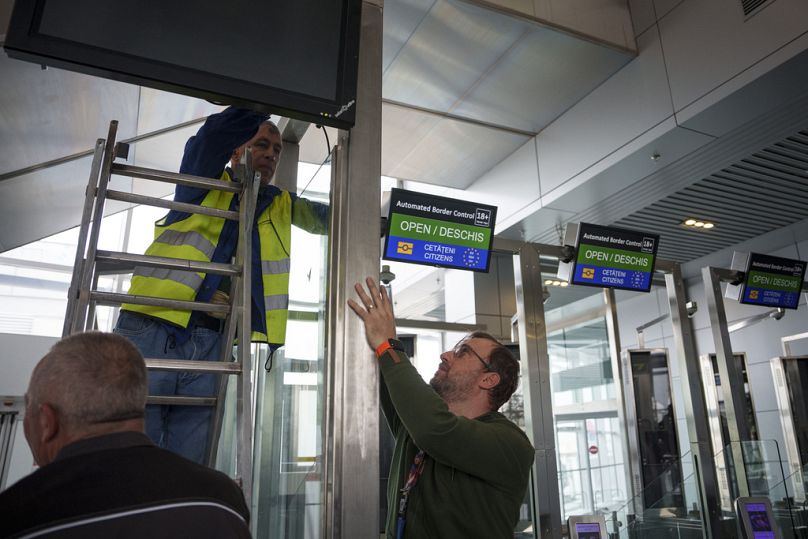
The implementation of the EES will, however, pose operational challenges for EU member states — including a more complex border flow. Other challenges will be additional processing time, infrastructure pressures and interoperability.
EU member states are already adapting their processes to deal with these challenges. The border crossing experience for third-country nationals will change, and this may involve longer processing times.
- Last-minute bookings and border queues: Here’s how airlines think the EES will affect passengers
- Chaos at UK airports as border gates fail again: What happened and will it impact new EES system?
The EES regulation provides for National Facilitation Programmes to enable accelerated border facilitation for low-risk, pre-vetted and pre-registered travellers. Although some authorities have shown interest in this, their initial priority has been the implementation of self-enrolment kiosk technology at border control points.
Can the EU benefit from working with external providers?
One option to streamline the process is for EU member states to bring in trusted external service providers to mitigate some of the challenges arising from the new system by applying their biometric enrolment capabilities to pre-register travellers to the EU — particularly where operational pressures pose a risk of disruption.
Collaboration with such external providers is nothing new. When the role of biometric technology in visa issuance became increasingly important, it created a significant strain on consular resources.
Biometric capture requires physical interaction with applicants, which puts pressure on existing infrastructure, human resources, geographical reach, capacity, and funding, as well as the need to integrate systems and business processes in order to ensure the integrity and security of the application process.
- Will going digital really simplify applying for a Schengen visa?
- ‘Bad for tourism’: Why travel agents say the new EU Entry/Exit system could be delayed again
To solve such operational issues, EU governments turned to external providers to assist them in dealing with the non-judgmental side of their visa issuance services, such as biometric enrolment (including the secure transmission of data to national systems) and visa application administration.
Working with such providers to deliver these services is now an integral part of border and migration services around the world. This collaboration has eased staffing, infrastructure and financial pressures whilst streamlining processes.
The EES will certainly enhance border control and migration management, but it will also create significant operational challenges for EU member states that could affect travellers' experience at border crossing points.
This is where external providers can add value by facilitating a streamlined process for third-country nationals travelling to the EU.
Tony Mercer is a former UK senior civil servant specialising in border, migration and identity management.
At Euronews, we believe all views matter. Contact us at [email protected] to send pitches or submissions and be part of the conversation.
You might also like
How does the european parliament group shuffle work five golden rules, can ursula von der leyen manage a more fragmented eu, in french legislative elections, the far right will probably fall short.
Traveling abroad with disabilities: Here's a post-pandemic guide
Traveling abroad with a disability was a challenge before COVID-19. But during the pandemic, things got even harder.
Jo Meleca-Voigt, a retired school teacher from Rochester, New York, remembers her recent flight to Aruba for her cousin's wedding.
"It was painfully apparent that the airport was understaffed," she remembers. "Airport employees had either forgotten their training regarding travelers with disabilities, or were new and untrained."
Meleca-Voigt says she felt "invisible" as the overworked airline employees failed to offload her wheelchair for her connecting flight and then repeatedly dismissed her concerns.
More than 25 million Americans have a disability that limits their travel, according to the Department of Transportation. That's just over 8% of the population. Most disabled travelers can get around with a cane or a wheelchair, but 3.6 million Americans say they don't travel at all because of their condition.
Learn more: Best travel insurance
The challenges can be even greater when you're traveling overseas. Not only is it a longer trip, but there are also language and culture barriers to overcome – plus, the time difference that can drain your energy. If you understand the rules of traveling with a disability – especially the mask requirements – and can plan your trip sooner, you can avoid most trouble, experts say.
'I'M OFTEN FORGOTTEN': This traveler was left in an airport basement for hours
Know the rules before you travel overseas
Meleca-Voigt took matters into her hands when she couldn't access her wheelchair at the airport. She sent a series of tweets to her airline, documenting its missteps and warning that it violated Department of Transportation rules.
"Read up on Department of Transportation and Federal Aviation Administration rules and regulations regarding disability and wheelchair travel," she says. "Bring a copy with you if necessary."
You can find the rules on the DOT site .
Meleca-Voigt's story has a bittersweet end. She made it to Aruba, but her wheelchair in the cargo hold was broken. It took four months and repeated emails to the DOT and her airline to get it fixed.
TRY OUR TRAVEL NEWSLETTER: Get the latest headlines in your inbox daily
Don't wait to plan your international trip
Experts anticipate high demand for everything from disabled-accessible hotel rooms to vans equipped with wheelchair lifts. The sooner you book, the better your chances of getting one.
"Last minute bookings will be difficult to fulfill," says John Sage of Sage Traveling , an agency specializing in travel for the disabled. "Travelers with disabilities should make their accessible travel arrangements far in advance.”
How far? This is the right time to think about your summer vacation.
If you have a disability, you need a Plan B for your trip abroad
International travel always has required an extra layer of planning. But as the pandemic loosens its grip on the world, disability experts say you have to take your planning to the next level.
John says things have shifted during the pandemic. He recalls one trip to Saudi Arabia where the airline lost his luggage for four days.
"Wearing a mask while pushing a wheelchair in the heat can be very uncomfortable. Handwashing stations are not all accessible. Some health and safety devices interfere with accessibility in hotels," he says.
TRAVELING ABROAD? Create a Plan B in case you get COVID
The likelihood of canceled and delayed flights is higher this spring and summer, according to Sage. He says if you're traveling abroad with a disability, you'll need to anticipate a disruption.
"Have a backup plan in case you miss a flight," he advises. "This includes backup accessible accommodation and transfers."
A travel advisor can help with a backup plan. You can find one at the American Society of Travel Advisors site. Under "Specialties," click on "Accessible/Special Needs."
Advisors can also connect you with the right services. For example, maybe you don't know that Norwegian Cruise Line has a team of accessibility coordinators to help passengers with disabilities . But your travel agent does.
"The accessibility coordinators will contact travelers before their cruise to ensure a seamless vacation," explains Harry Sommer , president and CEO of Norwegian Cruise Line. They provide a dedicated point of contact onboard to support special-needs passengers throughout the journey.
Pay attention to the mask rules before you leave
"There are a lot more safety protocols in place that make planning a little more difficult than it was pre-pandemic," says Dina Farmer, a certified autism travel advisor. "Things to navigate such as COVID-19 testing, masking and restrictions can be very difficult for some autistic individuals. For those with sensory aversions, it can be difficult to keep a mask on for long-haul flights or tolerate testing."
Her advice? Don't assume you know the mask requirements before you leave, because they are constantly changing. That's particularly true when you're traveling abroad, where mask and vaccine requirements can change as you cross the borders. If an airline requires masks onboard but you are unable to wear one, find out how to apply for an exemption.
"Plan early and be as flexible as possible," she adds.
'DON'T STARE BUT DON'T IGNORE: What disabled travelers want you to know
Now is the time to plan your overseas trip – especially your accommodations
Speaking of booking early, if you're wondering when to plan that trip abroad and you have a disability – the answer is now.
"As international travel increases this year, hotels and vacation rentals will fill up more quickly," says Narendra Khatri, principal of Insubuy , a travel insurance company. "If you require certain amenities due to your disability, they may be harder to find on short notice."
Booking your hotel or vacation rental now instead of waiting until closer to your departure date will increase your chance of reserving a place that can accommodate your disability. And just in case something goes wrong, Khatri recommends a particular kind of travel insurance – a “ cancel for any reason ” policy that lets you cancel and recover between 50% and 75% of your prepaid, nonrefundable expenses.
So if you're traveling abroad and have a disability, you'll want to remember the rules, plan early, make allowances for something to go wrong and pay close attention to those ever-changing mask requirements.
Come to think of it, that's good advice for anyone traveling abroad this year.
Expert tips for planning a trip abroad with a disability
Set realistic expectations. That's the advice of Emily Labéjof, who recently made an overseas trip with her disabled sons. There was a higher chance that something will go wrong, with the lower staffing levels and higher COVID confusion. "We all agreed that if something went wrong, we would roll with the punches, find an alternative solution and still enjoy our vacation," says Labéjof, a marketing director from Las Vegas.
Get vaxxed and boosted. "There are very few destinations left where you can travel without being vaccinated," says Kimberly Davis , CEO of Trouvaille Travel International . Also, pay attention to the medical coverage in your travel insurance policy. "Travel insurance with extensive medical and evacuation coverage is absolutely necessary, as is reading the fine print to ensure pandemic and quarantine coverage."
Be proactive. The pandemic was a challenging time for some people with disabilities, but now that we're coming out of it, experts say it's time to speak up and be proactive. "Persons with special needs need to become more vocal and assertive with regards to their rights," says Kunal Sawhney, CEO of the Kalkine Group , which consults with travel companies. "It is time you don't feel uncomfortable when demanding things like a wheelchair."
Want more information on this topic? Check out " Traveling with disabilities ," a 10-part series focusing on the experiences of travelers with disabilities. This is part of our continuing mission to highlight underrepresented communities in travel. If you'd like to contribute to our reporting and share your experience as a source, you can fill out this quick form .
- Adventure & Nature
- Attractions
- Beach & Sun
- Food and Drinks
- Things to Do
- Accommodations
- Budget Travel
- Backpacking
- Solo Travel
- Themed Vacations
- Transportation
- North America
- South America
- Apps & Gadgets
- Savage Travels

- Work with Us

50 exciting traveling challenges to do before you turn 50
Sometimes it seems that time passes by so fast and this is, unfortunately, the cruel reality. But when the time is well spent, then instead of feeling sad about aging you can always go back to the good memories and the great experiences you’ve had.
For most people, these good experiences come mainly with new adventures and with traveling. And of course, this is mainly how people learn something new, discover and explore and collect new episodes of their movie called life.
Exciting traveling challenges to do
So what we have here are some challenges to do to spice up your travel life a bit. They can lead you to new experiences and new feelings you haven’t encountered before and, as traveling works, they can leave you speechless and then turn you into a storyteller. Well, here you have it – a list of traveling challenges we recommend. Some of them may inspire you to go on a trip immediately, while some you might have already done, so check out how creative you are while you’re on the road.
- Try hitchhiking with your friends in a foreign country.
- Go camping on a deserted beach with your new lover.
- Run along the Chinese wall with your selfie stick up in the air.
- Watch the stunning Northern lights while having a glass of excellent wine.
- Skinny deep late at night in the waters of the Mediterranean Sea.
- Take a selfie with a llama on Machu Picchu.
- Try to avoid social media during a trip – can you do it?
- Find the funniest looking person at the bus station and buy a ticket for a day trip to the destination he/she is going.
- Go on a Zipline anywhere you can in the world, but if you want an actual challenge then choose to do a zip line in Nepal.
- Try out tandem paragliding above a lovely surface such as a famous national park or a spectacular blue sea.
- Make a photo album (a real one, not on social media) about every trip you’ve had and keep it in a good place for eternal memory.
- Send postcards from places you visit your friends and the people you’ve met along the trips.
- Visit Disneyworld no matter how old you think you are (and you are never too old for Disneyland).
- Visit some of the most popular music festivals organized throughout the world.
- Pick a destination that is on the other side of the world from the point where you live.
- Don’t be scared to fall in love with whoever you find amusing and is nice to you along the way.
- Taste some traditional Asian food that includes insects and other stuff you might not feel like trying out at all.
- Take a ride on a train that goes through the most beautiful railways in Austria, Switzerland, and Italy.
- Go on a cruise that lasts for more than a week and stops at exotic places.
- Learn a few interesting phrases in as many languages as you can.
- Visit a new city without a map, nor any knowledge of the city, just ask the people along the way for which places to visit, where to go and what to do.
- Use your money to travel more instead of buying unnecessary things for your home.
- Visit at least three continents.
- Have fun while you pretend that you’re a famous TV star visiting a foreign country.
- Sing your heart out with the street musicians you meet in a new city.
- Go on a camel ride through some of the deserts in Egypt.
- Visit the seven wonders of the world.
- Book a ticket to Bali, Indonesia and spend a few days relaxing at a spiritual retreat .
- Travel to China to hold baby pandas at panda research bases.
- Go snorkeling in Seychelles and get inspired by the most beautiful and colorful underwater world.
- Drive a motorbike and enjoy the scenic view from the Great Ocean Road in Australia .
- Watch the craziest soccer game on Earth called Superclasico played in Buenos Aires.
- Attend one of the most exciting and diverse street carnivals .
- Travel to China to be amazed by the Lantern Festival that is organized every year.
- Leave your problems behind whenever you go on a road trip .
- If you have kids , try to travel as much as you can with them and create memories together.
- Taste the local beverages and dessert specialties .
- Go on a bike tour whenever you visit a new city to feel the heartbeat of the town and not just its main attractions.
- Listen to some local music and learn traditional dances in a foreign country.
- Always take the seat next to the window whenever you fly with a plane and try to explore the world from above as much as you can.
- Take an enjoying bath in some of the hot springs in Iceland .
- Change at least four cities of living.
- Visit some of the tribes on this planet and spend a few days learning their habits and rituals.
- Swim under a big waterfall .
- Visit places you like no matter what people say they have experienced there.
- Collect things from places you have visited that will remind you of your lovely experience there.
- Attend a color run in a big city.
- Visit museums you like even though you may think that the price of the ticket is high.
- Create a traveling bucket list for the following ten years.
- Enjoy life to the fullest and make every traveling adventure worth.
So, what do you think of these challenges to do? Are you thinking of trying out some of these traveling challenges? Or maybe you have done the same things that are mentioned on this list? Let us know what your thoughts and feelings about this “kooky” traveling list are and share some of your adventurous traveling memories with us.
RELATED ARTICLES MORE FROM AUTHOR
Here are the places you need to travel to before 2022, merging culture and nature: what the longest rivers in europe reveal about the continent, reconsidering cheap travel – is it an alternative or a privilege, leave a reply cancel reply.
Save my name, email, and website in this browser for the next time I comment.
EDITOR PICKS
Experience san diego’s perfect, year round weather, top 20 bicycle-friendly cities in the world for 2021 / 2022, best national parks for families in 2021/2022, popular posts, popular category.
- Europe Destinations & Cities 78
- Attractions 69
- North America 62
- North America Destinations & Cities 51
- Adventure & Nature 48
- Accommodations 42
- Food and Drinks 40
© The Best Travel Places - Photo Credits: Dreamstime.com
- Privacy Policy
- Affiliate Disclaimer
Privacy Overview
Chinese outbound travel recovery lags due to costs, visa snags
- Medium Text

FLIP TO DOMESTIC TRAVEL
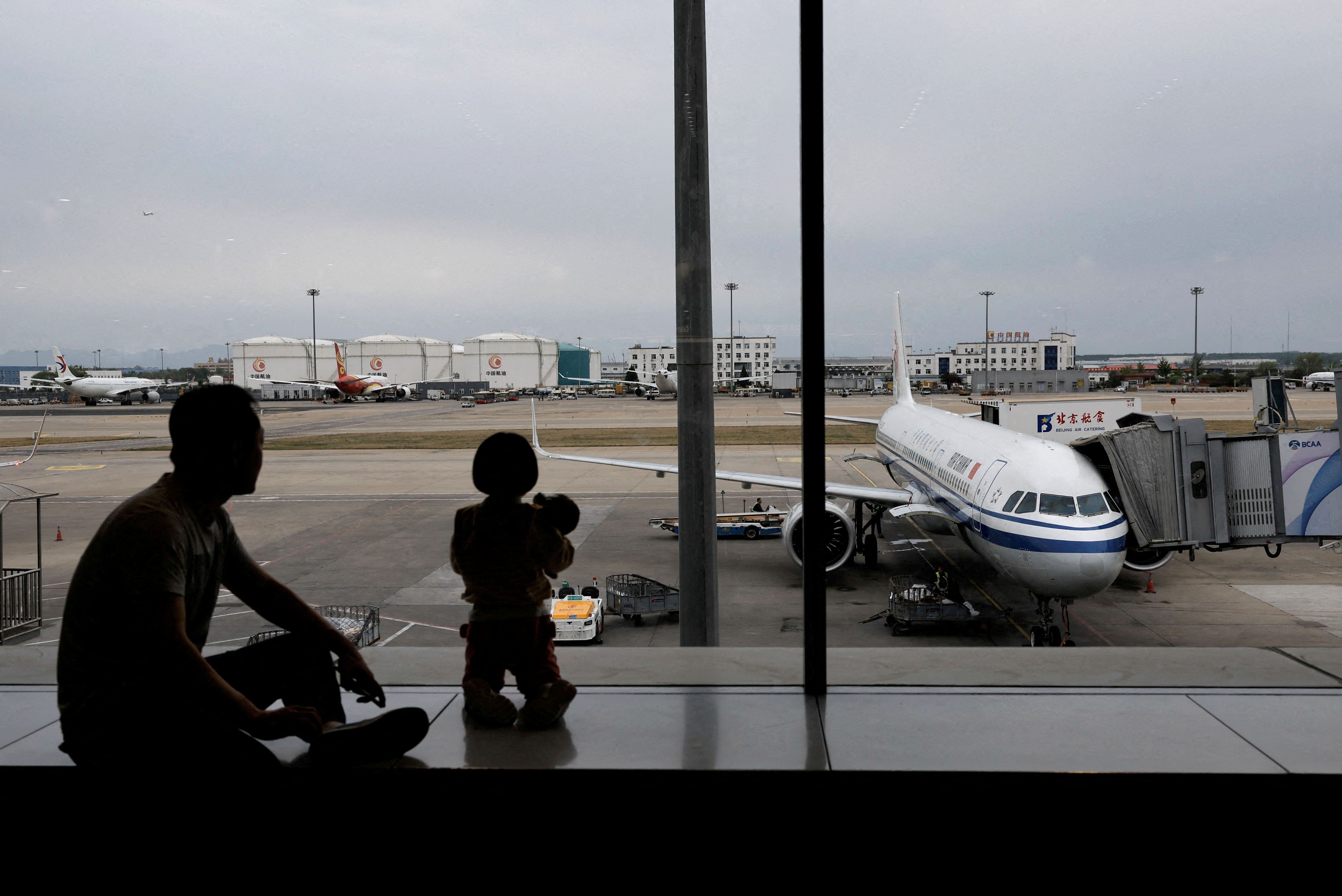
Sign up here.
Reporting by Sophie Yu in Beijing, Casey Hall in Shanghai and Lisa Barrington in Seoul; Additional reporting by Diana Mandia in Gdansk; Editing by Miyoung Kim and William Mallard
Our Standards: The Thomson Reuters Trust Principles. New Tab , opens new tab

Thomson Reuters
Casey has reported on China's consumer culture from her base in Shanghai for more than a decade, covering what Chinese consumers are buying, and the broader social and economic trends driving those consumption trends. The Australian-born journalist has lived in China since 2007.

World Chevron
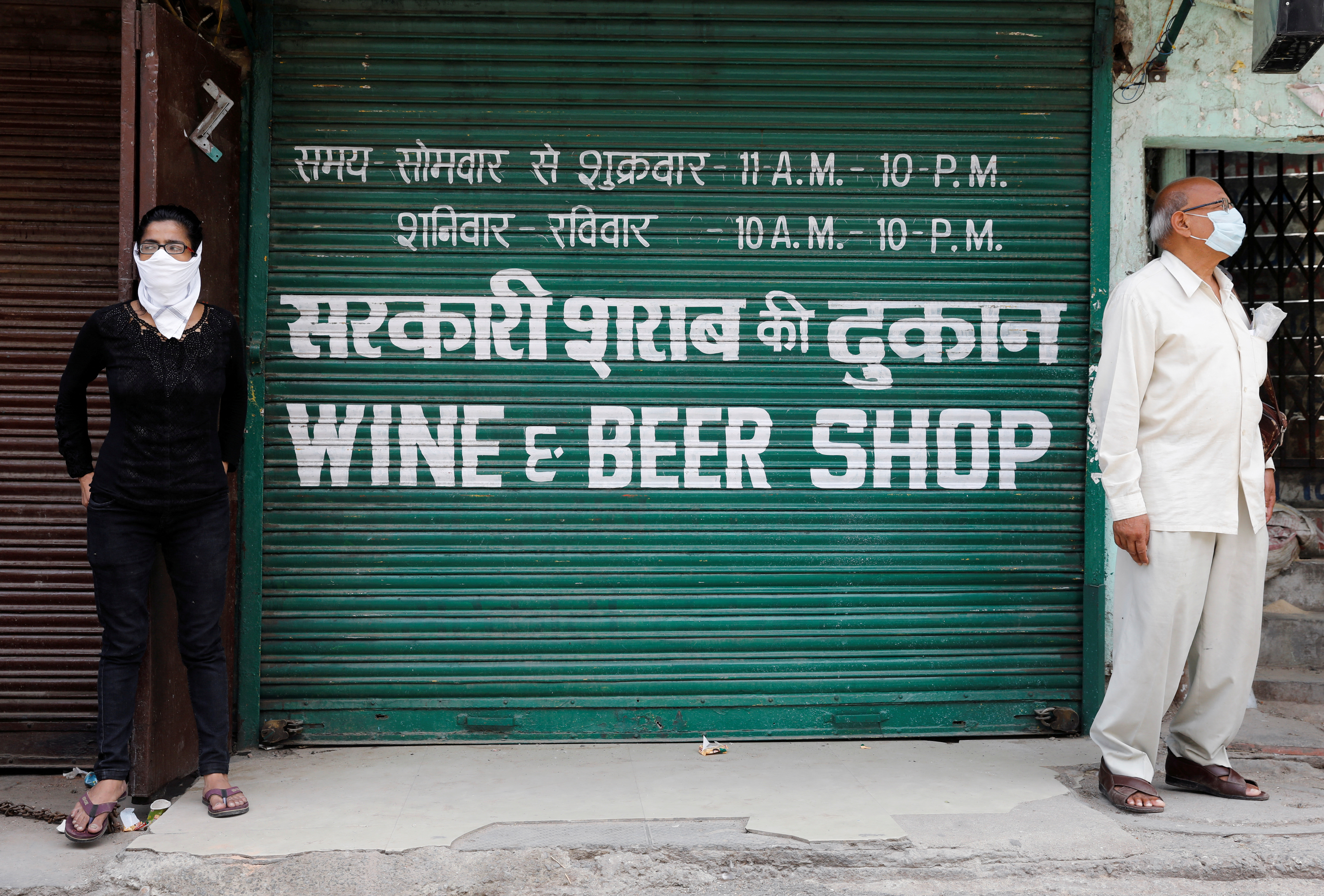
Children found working at India distillery went there by school bus, official says
Some of the 58 children found working illegally in a distillery of India's Som Group were transported to the factory in school buses, the chief of the Indian government child rights agency overseeing case told Reuters.


- Get in touch
- Read our blog

Global Citizenship Journeys
Embark on an awesome new adventure with students from across Australia. Choose from 7 destinations and a wide range of programs, all designed to help you start your Global Citizenship journey!

12 YEARS AND NEARLY 3,000 GLOBAL CITIZENS
Over the last 12 years, we have become renowned for developing Global Citizens. Close to 3,000 students from Australia (just like you), have joined our programs. This has contributed to over 150,000 hours of work and support across our global community!

Short-term programs, long-term impacts
We have teams in-country 365 days a year. They not only support our Global Citizens but develop the sustainability of our long-term projects; all backed by our very own charity, The FutureSense Foundation. When we say you’ll be part of something bigger, we actually mean it.

TRUSTED BY INSTITUITIONS NATIONWIDE
With our extensive experience, we develop bespoke programs for our valued university partners across Australia. Many of these programs are credit-bearing experiences, tailor-made to meet specific learning outcomes, all while providing invaluable contributions to our long-term development projects.

HOW DO I GET STARTED?
Decide on a time to travel. Choose a destination that excites you the most. Pick a program that aligns with your passions. Our team are with you every step of the way and can guide you as you start this Global Citizenship journey!

LOOKING FOR SOMETHING MORE?
As you start thinking of your portfolio of skills that are going to help you land your dream job, it's time to step up and kickstart your journey as a future global leader. Our Challenge Leader program is guaranteed to help take your skills to the next level!

It's one thing to experience such a different cultural as a tourist, but so much more incredible to experience it as a global citizen.
This was the best experience of my life!
I had the most amazing time and couldn’t recommend a trip like this more highly to anyone.

Send an enquiry
According to your location, Challenges Abroad Australia would be more appropriate.
According to your location, Challenges Abroad New Zealand would be more appropriate.

Join a Global Community of People Who Care
Overseas programmes developed alongside the UN Goals for Sustainability Development.
Welcome to Challenges Abroad!
Our mission is to ignite compassion and create a new generation of Global Citizens. We help students develop their skillset and grow as individuals whilst providing unforgettable, ethical experiences!
Be confident that you’re taking part in a sustainable carbon-neutral programme.
Join over 8,000 students who have begun their global citizenship journey with us.
Book with confidence and travel across six breathtaking continents.
Our Programme Types

- Global Challenges
Perfect For
- Course specific programmes
- Adventure and cultural experiences
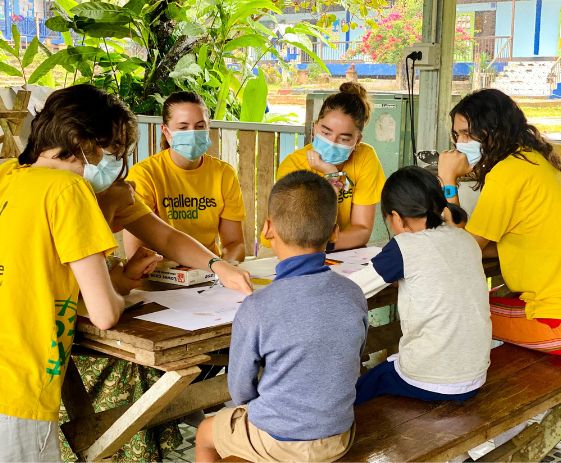
Global Citizenship Programmes
College and Sixth form
- Funding options available

Virtual Internships
University Students
- Funding options available
- Get a taste of international development
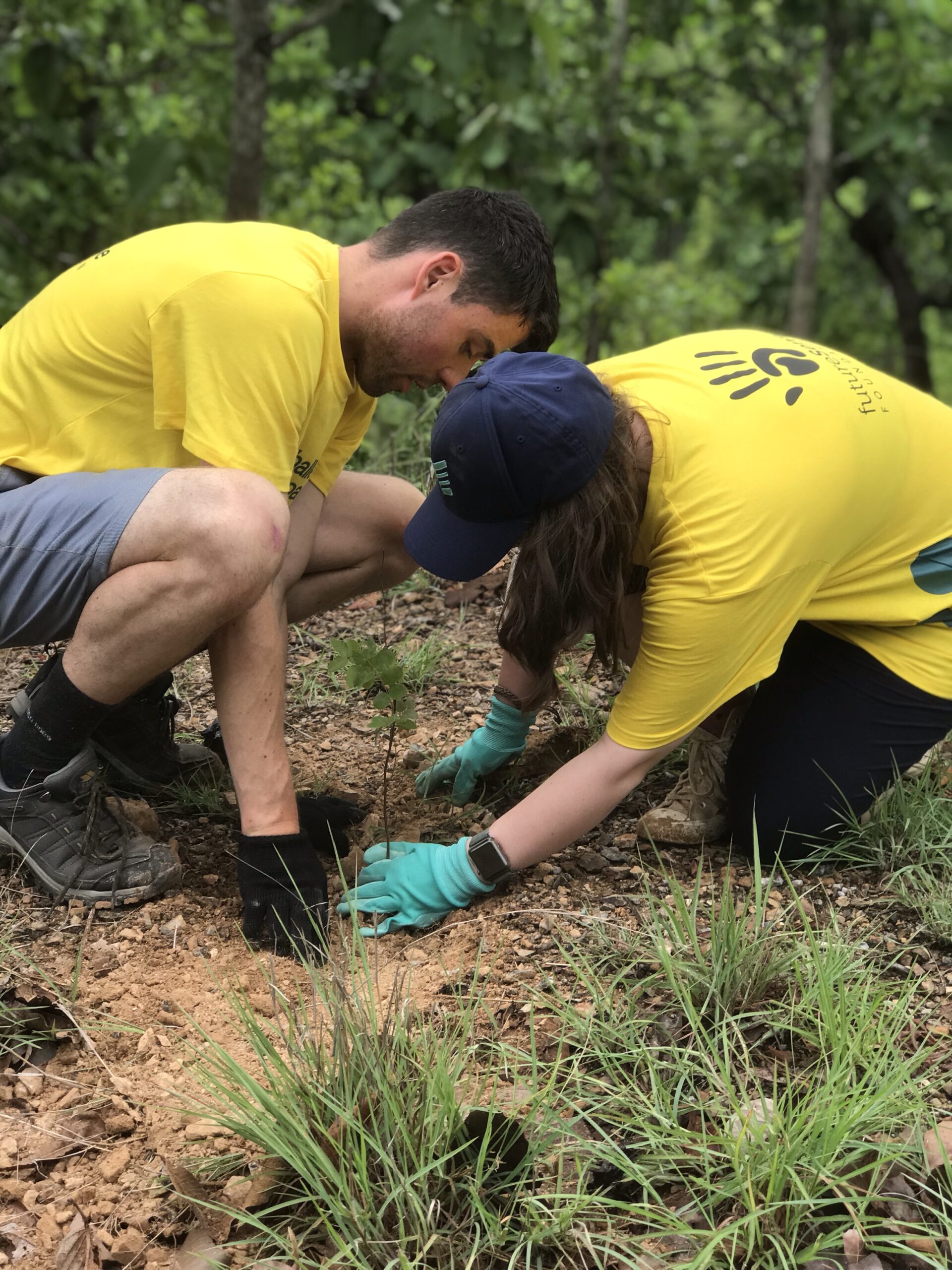
Join our Global Community Today

Our carbon commitment
We have partnered with Evertreen to neutralise the carbon footprint generated for every trip. With Evertreen, we will be planting trees in Kenya and Nepal, therefore supporting the local community in the area, generating employment and neutralising carbon emissions. In addition we encourage students to participate in activities such as tree planting and reducing their use of plastic.
We develop Global Citizens
You’ll get real, in-the-field experience of solving problems, engaging with new communities and understandings of different cultures and people. At the end of your journey with us, you’ll have transformed your outlook on the world, and gained irreplaceable transferable skills – and, of course, friendships for life.
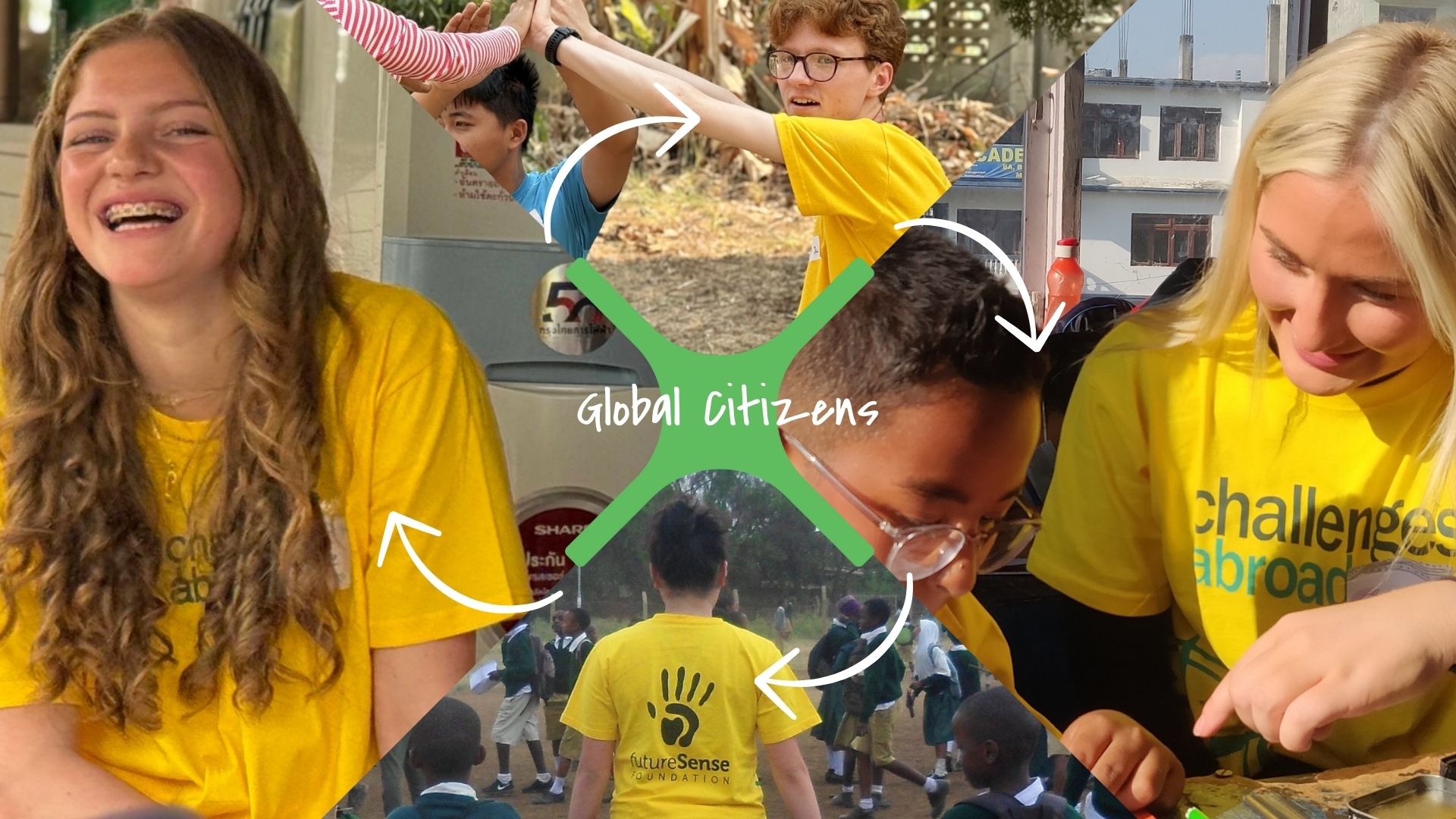
Partner with us
With the strength of our overseas challenges and programmes, we have developed government, university, and RAG partnerships across the UK and Australia. Here are just some of our partners.

Book with confidence
- No fees to change your trip
- Flexible payment options
- 10 + years of experience
Destinations
- South Korea
Programme Types
- About Challenges Abroad
- Partner With Us
- Meet The Team
- Our Charity
- Safeguarding and Child Protection
- Participant Safety and Support
- Enquire Now
- +44 (0) 1635 88 93 93

- © 2012-2024 Challenges Abroad Ltd. All rights reserved
- Terms and Conditions
- Privacy Policy
- Child Protection Policy
- Code of Conduct
- Safeguarding Statement
Send an Enquiry
Senior Denial
Aging is just another word for living!
Know These Mobility Challenges Before You Travel Abroad

Do you want to travel abroad but have mobility challenges? Before you plan your next big trip to Europe or other overseas destinations, I’m here to tell you that mobility challenges require careful consideration before putting down the deposits. The advice in particular holds true when planning a visit to popular historical sites where streets and stairs were often created many hundreds of years (or more) ago.
I’m by no means saying you shouldn’t go to a particular place, only that careful consideration of your abilities and limitations are key. That’s because many sites aren’t equipped to safely accommodate those who are physically challenged. That’s why you should heed these travel to Europe tips so that you can return home safely and healthily.
Before diving into this topic, I want to differentiate between mobility challenges and having a disability . For this blog, I’m strictly referencing your ability to get around. For many overseas destinations, it means being on the go constantly, and at a fast pace at that. I’ll be discussing traveling with a disability in another blog, because it involves different considerations and goes beyond mobility.
So, why do many historic cities have such mobility challenges for individuals? A majority of quaint villages and cities have preserved cobblestone streets and other original surfaces, which can include gravel and dirt patches, because they are authentic and add to the charm. In a majority of areas, historical beauty comes with narrow (or none) sidewalk areas, competition between pedestrians and cars and scooters for pathways, and tons of stairs and uneven walking surfaces. If it rains or mists, then those surfaces become really slick.
In many cases, if you require use of a wheelchair, scooter, walker, or even just a cane, your trip will be more challenging. I’m not saying impossible by any means, and I’m not at all suggesting you should avoid the destination. Rather, I’m saying be warned and be prepared with these travel to Europe tips . Know your limitations. Consider your hotel and tours carefully. Then decide if traveling to a particular destination is right for you.
Mobility Challenges on Our European Adventure
My husband Rick and I (both in our early 60s), just returned from a vacation to various cities across Italy and to Paris. We both consider ourselves healthy, moderately fit, and able to move and walk at a fast pace. Having said that, there were many times during our multi-week stay that it was a struggle to safely navigate walking surfaces, getting on and off boats, and even going up and down the old and uneven stairs of some of the more popular sites.
While we did return healthy and without incident, we often were sore and achy throughout our three-week adventure. Even using some transportation alternatives at times like golf cart tours, taxis and Uber (when in Paris), we still walked over 70 miles during our trip. Of course, when going greater distances, we booked trains, tour bus, and ferries.
We also avoided booking the tours that said intense physical exertion is required, and thankfully so, because we found that tours saying “moderate exertion” was plenty for us. Even visiting the catacombs in Paris required going down a winding staircase into the underground, which then meant we had to traipse back up to ground level the same fashion. It wasn’t for the faint-hearted or short-winded folks, even with under 200 steps each way.
(Important side note: many places requiring that tourists climb or walk down levels have added the caveat that there is no ability to “take a break” while doing so. That’s because the corridors, steps, and walkways are often so narrow that if you stop, you are essentially keeping everyone else from getting to the top, or bottom. That means, once you commit to going, you’re in it. Keep that in mind.)
It was quite surprising on our trip to see such a high number of older individuals who weren’t faring very well with their mobility challenges. Crowded streets added to the risk, because you often really couldn’t see the surfaces clearly due to the number of people in order to navigate. Many of the streets are built on hillsides, and there are lots of walking bridges to go over canals. There were steps everywhere, and lots of them are carved from rock or a slick basalt or travertine.

How about Rome’s coliseum? There are steps to the underground and steps up to the arena, followed by lots of steps to Palatine Hill. And riding a gondola in Venice? Be prepared to step down and walk to your seat on a shaky moving small boat … and one at a time so it won’t tip (so don’t look for a helping hand here). Many sites warn that you must be “moderately fit” and not claustrophobic. They aren’t kidding!
There is typically no provision for walkers, canes, or aids for any type of physical limitations, other than handrails (and not every place has those, either). Even visiting some famous piazzas and surrounding stores may involve hoofing it up and down some flights. Museums? Even same floor exhibits (and many large museums do have elevator access) often involve multi-levels to some degree. And, again, with Europeans’ love of marble, granite, and all things slippery, we found ourselves sometimes sliding on surfaces a tad, even on sunny days.
One of our favorite excursions was visiting the Amalfi Coast. It wasn’t for the faint-hearted or impaired walking, as from Rome the round trip meant taking two high speed trains and three ferry rides. The public transit systems required “rushing to board” once a platform was assigned at last minute, hurriedly finding your seat before the train took off, and then very quickly getting off before it took off again.
If you had luggage, that was another challenge, and don’t expect much, if any, help with that. But we did it. Since the charm of the villages meant they were built on the hillside, it also meant a lot of walking.
While in Positano, I did successfully make the climb practically straight up a hill to visit a lemon farm where they make the famous limoncello liqueur. However, it was quite exerting (not just for me, but others in our group as well). Handrails for navigating the hand-chiseled steps were only added in some areas.
Luckily, they bribed me with a lemon cake and lemon water as well as the liqueur at the top, and I have the agree the view was incredible. However, I was glad to reach the main level back down after that outing.
Flooring in Hotels Can Create Mobility Challenges
Hotel rooms, especially historic ones, seem to use lots of the marble flooring, which is beautiful to see but can be slick. It is so awe-inspiring to see the layouts of the rooms and lobby areas. However, at one hotel, we were upgraded to a stunning loft configuration. It was beautiful, but I nearly tumbled down the stairs one morning after I missed the first half-step turn.
While flooring wasn’t a deciding factor by any means (and it’s so much more beautiful and sanitary than old carpet), another of my travel to Europe tips includes avoiding wearing the comfy but oh-so-slick house slippers in a room with a slick surface. And, be ultra careful when getting in a shower that has the same flooring. I did do a Tom Cruise-style slide across the shower area one morning in the shower that thankfully, ended with just a giggle and nothing more.
Full disclosure: While certainly not mobility-impaired per se, I’ve had a “gimp” knee since twisting it skiing in my past. It sometimes buckles, so I was always conscious of my step. Rick has a hip that gets achy. Neither ailments kept us from doing everything we wanted, except that sometimes we literally just chose to sit for a minute when we could and take a short break.
Thinking a bit more on this, that’s not entirely true. We had signed up for a tour that included a timed entrance into the Florence, Italy, Duomo Tour with Brunelleschi’s Dome Climb AND Bell Tower Climb. After reading the description that each was about 400 steps and was a narrow walk, I opted out and my husband decided the same, mainly in support of me.
The decision was made with the details that included there were no landings or benches to catch your breath, if needed. But, we did the other elements of the tour, including visiting the spectacularly beautiful cathedral.
Also, there are other travel to Europe tips you should really consider.
7 Things You Should Know Before Heading Over to Europe with Mobility Challenges

For example, if you plan to only visit major museums or the floor level of cathedrals, mobility won’t be a key concern. But if you have your heart set on climbing to the top of areas that tout “the best views of the city” or staying in a hotel that is on the side of the cliff, you might carefully analyze the mobility challenges you might face (as well as of your travel companion) before booking.
Keep in mind that these “simple physical acts” aren’t mentioned as mobility issues in brochures or guides, so it’s up to you to know your limitations.
Tourists flocked to Europe in 2023 and are expected to do so again in 2024 and beyond. For locals catering to visitors, there are schedules to keep, crowds to navigate, and activities to maintain so that the experience is as promised and positive reviews are rewarded.
With that said, everywhere we went was crowded, and we went during the so-called “shoulder” season in October of this year. I understand it was even more crowded during the prime tourist season of summer.
The crowds mean you are constantly on the go, with timed entry times to make, tour guides to meet, and statues, paintings, cathedrals, and areas to see…along with everyone else.
If you are only able to walk at a slow pace, you could easily get left behind, or else take an unfortunate tumble or twist in your mission to keep up the pace. We saw many individuals who look like something may have happened in their adventure and were out in the piazzas with bandaged arms or sporting crutches.
My same-age friend suffered a nasty fall on her first day in Italy when she was on a family trip, and faced the rest of the time on crutches and in pain. So, it happens!
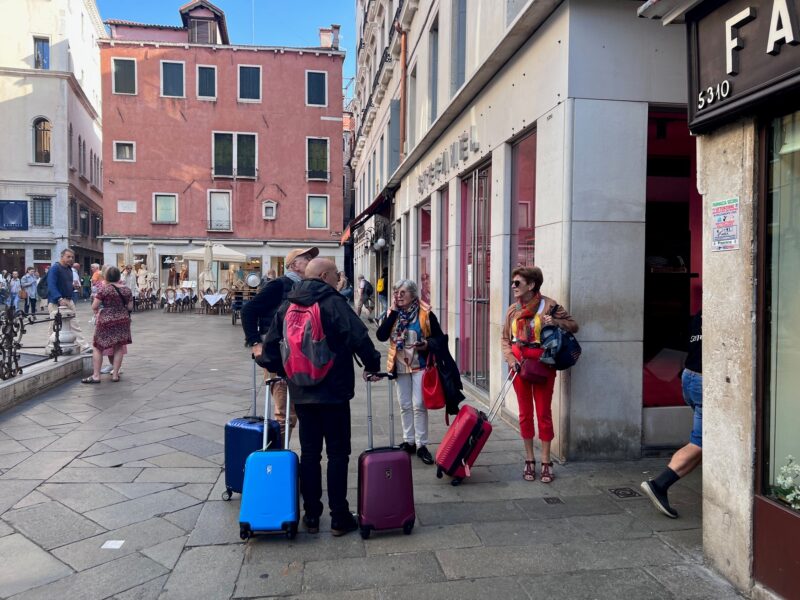
There were plenty of younger, active individuals who seemed to have only small bags and were quite seasoned with doing this. In that case, go for it. But, more often than not, there were individuals lugging overly large, wheeled suitcases, fighting uneven surfaces and having to lift and lower their gear constantly.
If you didn’t understand it before, let me re-emphasize that sidewalks (where there are some) tend to be narrow and often in disrepair as well. Add in that are crowds of people on those same sidewalks, and all seem to be in a hurry. The streets are typically filled with cars and fast moving scooters and motorcycles, and none have the time or patience to wait out for slow-moving, overly packed individuals trying to cross the streets.
While a hotel being only a mile from the train station may sound good in theory and a way to save some Euros when you are on a budget, be realistic about your abilities.
If still electing to make the hike with baggage, have a Plan B in place in case your initial walks with suitcases ends up with a broken wheel or handle in the process. (Trust me, it happens.)
Not all tour groups are created the same.
Choose carefully. That is the best advice we can give! My husband Rick carefully researched and compared the various tours before making selections for us. Kudos to him; he seemed to make the right choices every time and our tours were all incredible!
When it comes to choosing a tour, consider these travel to Europe tips before signing up: The tour group size matters. A lot. Carefully read what “small group” means, as there is no standard. For one company, it could be less than 6 or 8 people.
For another, it could mean less than 30. In general, the small group size, the better. A smaller size also means the guide can provide you with a better experience, rather than trying to keep herd over 30 wandering individuals who may not be watching where to go or what comes next.
Trust us. We experienced small and large group sizes, and it was a huge difference.
Carefully read all the details about what the tour includes. And doesn’t. There is sometimes some very tricky wording. Examples include the first part of a tour being with a live guide, while the second part is receiving headsets and venturing out with a self-guided one.
Or, finding that the departure point and end point are far away, and it’s up to you in finding yourself a way back to your hotel. Do read the reviews. While you can’t let a couple of bad ones override a decision when there are hundreds of happy customers, do give consideration to all comments. To be early is on time. To be on time may mean getting left behind. In our experience, the tours operated seamlessly, and “running late” wasn’t an option for people who got a late start or became lost.
It was explained to us that waiting for a couple of people may mean disappointing the overall group, as many entrances are secured with specific timing. There are simply too many people wanting to do excursions and crowd sizes are often limited. There may not be a later chance to secure entrance. Book excursions ahead of time. If possible, choose the options of “book now, pay later” and/or ones that say “fully refundable” if cancelled before 24 hours before departure.
We did cancel a couple of our tours due to deciding on something else, and the refund policy was immediate and easy. Don’t just look for the cheap option. Try and seek out the “best experience” option instead. With travel, you often get what you pay for. And, when traveling, time may be the most valuable resource of all.
For example, we had read that when visiting the Venice islands of Murano and Burano, the ferries or large boats may simply transport people over and essentially “dump them” over there, requiring many to spend hours there. That’s great if that is what you choose to do; not so much if you have to spend time standing in line with everyone else trying to get a seat on another boat back.
While more expensive, we booked a private boat with just the two of us, and it was worth every single Euro. We controlled what we wanted to do and when, and the captain accommodated our wishes. We chose not to walk around the islands, but instead spend more time on the water and visiting the area by water.
- Carry a small first-aid kit. Tuck a few essentials into your purse so that minor inconveniences such as a blister don’t slow you down. Neosporin, wipes, band-aid, and maybe a small sewing kit can be a life safer.
According to one of our guides, there are more than 130 museums located in and around Paris alone. Remember, you can always make a return trip. That’s why you need to throw a coin into Rome’s Trevi Fountain … so you can return one day!
These are just a few of many takeaways from our recent trip. We’ll be adding more tips for traveling to Europe, especially with those older individuals with mobility challenges.
I’ll also talk about what to wear, shoes that I recommend, and how much to take. Stay tuned!
More Senior Denial Travel Blogs You Might Enjoy Reading
Travel tops the list of older Americans. And there’s no better time to explore the United States and World than right now.
Here are tips and ideas to the most enjoyment from your travel adventures.
- Travel to Europe Requires a New Approval in 2024 : What You Should Know
- How Passport Processing Delays Continue Grounding Big Travel Dreams
- 7 Senior Travel Musts for Trips Requiring Extensive Walking
- Northern Lights Forecast : Why A Trip Now May Be Your Best Time
- Senior Rewards Programs : Do They Pay Off?

Robin McClure
Robin is the author of 7 parenting books and has 3 grown children, 3 spoiled rescue dogs, and a very understanding husband. She holds a bachelor's degree in journalism and a master's degree in communications, and spends her time writing, drinking coffee, and planning the next grand adventure.
Recommended Articles

Northern Lights Forecast: Get Ready to Be Mesmerized!
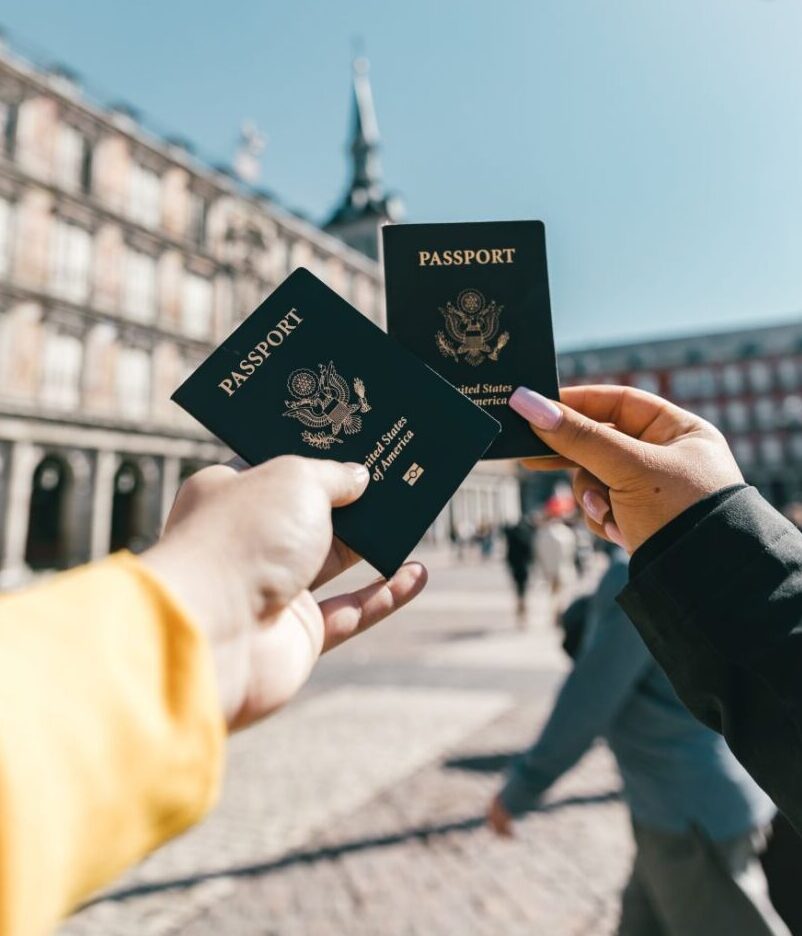
How Passport Processing Delays Are Grounding Big Travel Dreams

Nighttime Driving: Why It’s No Joy Ride for Many
Leave a reply.
Your email address will not be published. Required fields are marked *
Analysis-Chinese Outbound Travel Recovery Lags Due to Costs, Visa Snags

FILE PHOTO: Passengers look at the tarmac as they wait for their flights at the Beijing Capital International Airport, in Beijing, China April 20, 2024. REUTERS/Tingshu Wang/File Photo
By Sophie Yu, Casey Hall and Lisa Barrington
BEIJING/SHANGHAI (Reuters) - A recovery in Chinese overseas travel from the COVID-19 pandemic is fading as rising costs and difficulties in securing visas cement a preference for local and short-haul destinations.
The delay in a revival to pre-COVID levels by China's outbound travellers, the world's top spenders on international tourism and airlines, is hitting travel-related companies, hotels and retailers globally.
Eighteen months after China dropped strict zero-COVID policies and reopened its borders, the recovery in overseas travel is lagging behind market expectations and the shape of Chinese travel is changing, with a surge in domestic trips.
Pressured by a prolonged property crisis, high unemployment and a gloomy outlook in the world's second-biggest economy, Chinese consumers have become more frugal since the pandemic, prompting discount wars on everything from travel to cars, coffee and clothes.
Chinese people took 87 million trips abroad last year, down 40% from pre-COVID 2019, and industry observers say the pace has slowed since the Lunar New Year in February. China's travellers spent 24% less last year than in 2019, while U.S. travellers' spending was up 14%, according to U.N. Tourism data. The Chinese lag is bad news for countries like France, Australia and the U.S., which were among the top destinations for Chinese travellers before the pandemic.
Liu Simin, vice president of the tourism branch of the China Society for Futures Studies research institute, forecasts China's international travel might not recover to pre-pandemic levels for another five years.
"The recovery is a lot slower than expected," Liu said. "The devaluation of the Chinese yuan combined with inflation in the U.S. and Europe is a double blow."
The Chinese currency has fallen more than 2% against the dollar since the start of the year, raising costs in yuan terms for Chinese travellers abroad.
Consultancy Oliver Wyman last month pushed its estimates for China's international travel recovery to late 2025, half a year later than it forecast last year.
"I would actually argue that consumers are even more cost-conscious than last year, and you'll also see that feed into travel trends," said Imke Wouters, Hong Kong-based partner at Oliver Wyman.
To be sure, overseas travel is rebounding, with Chinese travellers again the world’s top spenders on international tourism last year after falling behind the United States in 2022, according to U.N. Tourism data.
This summer 8% of flights at Chinese airports have been international, up from just 1% in 2022, according to aviation data provider OAG.
FLIP TO DOMESTIC TRAVEL
That recovery, however, is overshadowed by the surge in domestic trips, which hit a record 295 million during the five-day May Day holiday, up more than 20% from 2019, official data showed.
Domestic airlines seats were up 16% in May from the same month in 2019, while international flights were down 30%, Cirium data shows.
Wouters at Oliver Wyman said 40% of those who travelled abroad in 2023 for the first time since borders reopened had decided not to travel internationally again this year, mainly due to inconvenience and long visa processing times for many European destinations.
Beijing resident Wang Shu, 38, vacationed domestically after cancelling a trip to France because he could not get a visa, despite trying to book a visa appointment months ahead.
"I tried booking the interview in late March, as I planned to attend the French Open tennis in late May, but the earliest date that I could book was June 19," Wang said.
Wang instead vacationed in Changsha, the capital of Hunan province, known for its spicy food.
"The food was great, I watched a concert and spent one-tenth of the money I'd have spent in France," he said.
Australia's top source of tourists before COVID, China is now number four, with arrivals down 53% in March from March 2019, said Margy Osmond, chief executive of Tourism & Transport Forum Australia.
Chinese travellers to France, the most visited country in the world, have reached only 28.5% of 2019 levels, according to airport operator ADP.
Capacity on U.S.-China routes remains down more than 80% from 2019 levels, weighed by intensifying bilateral political tensions. The U.S. National Travel and Tourism Office expects Chinese tourism to the U.S. to recover fully only in 2026.
By contrast, countries with visa-free policies have received strong growth in Chinese visitors.
These include Singapore, Malaysia, Thailand, the United Arab Emirates, Qatar and Saudi Arabia, where flight capacity has also increased.
Switzerland, growing in popularity with high-end travellers on Trip.com, boasts a seven-day visa process, said Jane Sun, CEO of Trip.com Group.
Japan has also received a surge in Chinese travellers this year, boosted by a plunge in the yen's value.
"We are not just seeing a market re-growing, we are seeing a market re-shaping," Gary Bowerman, director of tourism intelligence firm Check-In Asia, told an OAG webinar last month.
(Reporting by Sophie Yu in Beijing, Casey Hall in Shanghai and Lisa Barrington in Seoul; Additional reporting by Diana Mandia in Gdansk; Editing by Miyoung Kim and William Mallard)
Copyright 2024 Thomson Reuters .
Photos You Should See - June 2024

Join the Conversation
Tags: Switzerland , France , United States , Thailand , Europe , Japan , Singapore , Australia
America 2024

Healthiest Communities
Your trusted source for in-depth analysis on the issues impacting your community’s well-being delivered right to your inbox.
Sign in to manage your newsletters »
Sign up to receive the latest updates from U.S News & World Report and our trusted partners and sponsors. By clicking submit, you are agreeing to our Terms and Conditions & Privacy Policy .
You May Also Like
The 10 worst presidents.
U.S. News Staff Feb. 23, 2024

The Best Cartoons on Donald Trump
June 18, 2024, at 4:09 p.m.

Joe Biden Behind The Scenes
June 7, 2024

Boeing CEO Sees Withering Senate Rebuke
Laura Mannweiler June 18, 2024

Biden Unveils Plan for Immigrant Spouses
Elliott Davis Jr. June 18, 2024

What’s at Stake for Putin in North Korea
Aneeta Mathur-Ashton June 18, 2024

What Is Juneteenth?
Seth Cline June 18, 2024

Retail Sales Weaker Than Forecast
Tim Smart June 18, 2024

DOE Probe Dings 2 Universities
Lauren Camera June 17, 2024

Record-Breaking Heat to Hit the U.S.
Cecelia Smith-Schoenwalder June 17, 2024

- Best overall
- Best for exotic trips
- Best for trip interruption
- Best for medical-only coverage
- Best for family coverage
- Best for long trips
- Why You Should Trust Us
Best International Travel Insurance for June 2024
Affiliate links for the products on this page are from partners that compensate us (see our advertiser disclosure with our list of partners for more details). However, our opinions are our own. See how we rate insurance products to write unbiased product reviews.
If you're planning your next vacation or trip out of the country, be sure to factor in travel insurance. Unexpected medical emergencies when traveling can drain your bank account, especially when you're traveling internationally. The best travel insurance companies for international travel can step in to provide you with peace of mind and financial protection while you're abroad.
Best International Travel Insurance
- Best overall: Allianz Travel Insurance
- Best for exotic travel: World Nomads Travel Insurance
- Best for trip interruption coverage: C&F Travel Insured
Best for medical-only coverage: GeoBlue Travel Insurance
- Best for families: Travelex Travel Insurance
- Best for long-term travel: Seven Corners Travel Insurance
How we rate the best international travel insurance »
Compare the Best International Travel Insurance Companies
As a general rule, the most important coverage to have in a foreign country is travel medical insurance , as most U.S. health insurance policies don't cover you while you're abroad. Without travel medical coverage, a medical emergency in a foreign country can cost you. You'll want trip cancellation and interruption coverage if your trip is particularly expensive. And if you're traveling for an extended period of time, you'll want to ensure that your policy is extendable.
Here are our picks for the best travel insurance companies for international travel.
Best overall: Allianz
- Check mark icon A check mark. It indicates a confirmation of your intended interaction. Good option for frequent travelers thanks to its annual multi-trip policies
- Check mark icon A check mark. It indicates a confirmation of your intended interaction. Doesn't increase premium for trips longer than 30 days, meaning it could be one of the more affordable options for a long trip
- Check mark icon A check mark. It indicates a confirmation of your intended interaction. Some plans include free coverage for children 17 and under
- Check mark icon A check mark. It indicates a confirmation of your intended interaction. Concierge included with some plans
- con icon Two crossed lines that form an 'X'. Coverage for medical emergency is lower than some competitors' policies
- con icon Two crossed lines that form an 'X'. Plans don't include coverage contact sports and high-altitude activities
- Single and multi-trip plans available
- Trip cancellation and interruption coverage starting at up to $10,000 (higher limits with more expensive plans)
- Preexisting medical condition coverage available with some plans
Allianz Travel Insurance offers the ultimate customizable coverage for international trips, whether you're a frequent jetsetter or an occasional traveler. You can choose from an a la carte of single or multi-trip plans, as well as add-ons, including rental car damage, cancel for any reason (CFAR) , adventure sport, and business travel coverage. And with affordable pricing compared to competitors, Allianz is a budget-friendly choice for your international travel insurance needs.
The icing on the cake is Allyz TravelSmart, Allianz's highly-rated mobile app, which has an average rating of 4.4 out of five stars on the Google Play store across over 2,600 reviews and 4.8 out of five stars from over 22,000 reviews on the Apple app store. So, you can rest easy knowing that you can access your policy and file claims anywhere in the world without a hassle.
Read our Allianz Travel Insurance review here.
Best for exotic trips: World Nomads
- Check mark icon A check mark. It indicates a confirmation of your intended interaction. Coverage for 200+ activities like skiing, surfing, and rock climbing
- Check mark icon A check mark. It indicates a confirmation of your intended interaction. Only two plans to choose from, making it simple to find the right option
- Check mark icon A check mark. It indicates a confirmation of your intended interaction. You can purchase coverage even after your trip has started
- con icon Two crossed lines that form an 'X'. If your trip costs more than $10,000, you may want to choose other insurance because trip protection is capped at up to $10,000 (for the Explorer plan)
- con icon Two crossed lines that form an 'X'. Doesn't offer coverage for travelers older than 70
- con icon Two crossed lines that form an 'X'. No Cancel for Any Reason (CFAR) option
- Coverage for 150+ activities and sports
- 2 plans: Standard and Explorer
- Trip protection for up to $10,000
- Emergency medical insurance of up to $100,000
- Emergency evacuation coverage for up to $500,000
- Coverage to protect your items (up to $3,000)
World Nomads Travel Insurance offers coverage for over 150 specific activities, so you can focus on the adventure without worrying about gaps in your coverage.
You can select its budget-friendly standard plan, starting at $79. Or if you're an adrenaline junkie seeking more thrills, you can opt for the World Nomads' Explorer plan for $120, which includes extra sports like skydiving, scuba diving, and heli-skiing. And World Nomads offers 24/7 assistance, so you can confidently travel abroad, knowing that help is just a phone call away.
Read our World Nomads Travel Insurance review here.
Best for trip interruption: C&F Travel Insured
- Check mark icon A check mark. It indicates a confirmation of your intended interaction. Offers 2 major plans including CFAR coverage on the more expensive option
- Check mark icon A check mark. It indicates a confirmation of your intended interaction. Cancellation for job loss included as a covered reason for trip cancellation/interruption (does not require CFAR coverage to qualify)
- Check mark icon A check mark. It indicates a confirmation of your intended interaction. Frequent traveler reward included in both policies
- Check mark icon A check mark. It indicates a confirmation of your intended interaction. Up to $1 million in medical evacuation coverage available
- con icon Two crossed lines that form an 'X'. Medical coverage is only $100,000
- con icon Two crossed lines that form an 'X'. Reviews on claims processing indicate ongoing issues
- C&F's Travel Insured policies allow travelers customize travel insurance to fit their specific needs. Frequent travelers may benefit from purchasing an annual travel insurance plan, then adding on CFAR coverage for any portions of travel that may incur greater risk.
C&F Travel Insured offers 100% coverage for trip cancellation, up to 150% for trip interruption, and reimbursement for up to 75% of your non-refundable travel costs with select plans. This means you don't have to worry about losing your hard-earned money on non-refundable travel costs if your trip ends prematurely.
Travel Insured also stands out for its extensive "reasons for cancellation" coverage. Unlike many insurers, the company covers hurricane warnings from the National Oceanic and Atmospheric Administration (NOAA).
Read our C&F Travel Insured review here.
- Check mark icon A check mark. It indicates a confirmation of your intended interaction. A subsidary of Blue Cross Blue Shield
- Check mark icon A check mark. It indicates a confirmation of your intended interaction. Offers strong medical plans as long as you have a regular health insurance plan, but it doesn't have to be through Blue Cross
- Check mark icon A check mark. It indicates a confirmation of your intended interaction. Offers long-term and multi-trip travel protection
- con icon Two crossed lines that form an 'X'. Multiple complaints about claims not being paid or being denied
- con icon Two crossed lines that form an 'X'. Does not provide some of the more comprehensive coverage like CFAR insurance
- con icon Two crossed lines that form an 'X'. Buyers who do get claims paid may need to file multiple claim forms
GeoBlue Travel Insurance offers policies that covers emergency medical treatments when you're abroad. While GeoBlue lacks trip cancellation coverage, that allows it to charge lower premiums than the other companies on this list.
GeoBlue plans can cover medical expenses up to $1 million with several multi-trip annual plans available. It offers coinsurance plans for trips within the U.S. and 100% coverage for international trips. It also has a network of clinics in 180 countries, streamlining the claims process. It's worth noting that coverage for pre-existing conditions comes with additional costs.
Read our GeoBlue Travel Insurance review here.
Best for family coverage: Travelex Travel Insurance
Trip cancellation coverage for up to 100% of the trip cost and trip interruption coverage for up to 150% of the trip cost
- Check mark icon A check mark. It indicates a confirmation of your intended interaction. Options to cover sports equipment
- Check mark icon A check mark. It indicates a confirmation of your intended interaction. Option to increase medical coverage
- Check mark icon A check mark. It indicates a confirmation of your intended interaction. Can cancel up to 48 hours before travel when CFAR option is purchased
- Check mark icon A check mark. It indicates a confirmation of your intended interaction. Affordable coverage for budget-conscious travelers
- Check mark icon A check mark. It indicates a confirmation of your intended interaction. Includes generous baggage delay, loss and trip delay coverage
- Check mark icon A check mark. It indicates a confirmation of your intended interaction. Optional "adventure sports" bundle available for riskier activities
- con icon Two crossed lines that form an 'X'. Only two insurance plans to choose from
- con icon Two crossed lines that form an 'X'. Medical coverage maximum is low at up to $50,000 per person
- con icon Two crossed lines that form an 'X'. Pricier than some competitors with lower coverage ceilings
- con icon Two crossed lines that form an 'X'. Some competitors offer higher medical emergency coverage
Travelex travel insurance is one of the largest travel insurance providers in the US providing domestic and international coverage options. It offers a basic, select, and America option. Read on to learn more.
- Optional CFAR insurance available with the Travel Select plan
- Trip delay insurance starting at $500 with the Travel Basic plan
- Emergency medical and dental coverage starting at $15,000
Travelex Travel Insurance offers coverage for your whole crew, perfect for when you're planning a family trip. Its family plan insures all your children 17 and under at no additional cost. The travel insurance provider also offers add-ons like adventure sports and car rental collision coverage to protect your family under any circumstance. Got pets? With Travelex's Travel Select plan, you can also get coverage for your furry friend's emergency medical and transportation expenses.
Read our Travelex Travel Insurance review here.
Best for long trips: Seven Corners
- Check mark icon A check mark. It indicates a confirmation of your intended interaction. Diverse coverage options such as CFAR, optional sports equipment coverage, etc.
- Check mark icon A check mark. It indicates a confirmation of your intended interaction. Available in all 50 states
- con icon Two crossed lines that form an 'X'. Prices are higher than many competitors
- con icon Two crossed lines that form an 'X'. Reviews around claims processing are mixed
- Trip cancellation insurance of up to 100% of the trip cost
- Trip interruption insurance of up to 150% of the trip cost
- Cancel for any reason (CFAR) insurance available
Seven Corners Travel Insurance offers specialized coverage that the standard short-term travel insurance policy won't provide, which is helpful if you're embarking on a long-term trip. You can choose from several plans, including the Annual Multi-Trip plan, which provides medical coverage for multiple international trips for up to 364 days. This policy also offers COVID-19 medical and evacuation coverage up to $1 million.
You also get the added benefit of incidental expense coverage. This policy will cover remote health-related services and information, treatment of injury or illness, and live consultations via telecommunication.
Read our Seven Corners Travel Insurance review here.
How to Find the Right International Travel Insurance Company
Different travelers and trips require different types of insurance coverage. So, consider these tips if you're in the market to insure your trip.
Determine your needs
Your needs for travel insurance will depend on the type of trip you're taking. You'll need to consider your destination and what you'll be doing there, either business, leisure, or adventure traveling. Policies covering adventure sports and activities will cost more. Longer, more expensive trips will also cost more.
Research the reputation of the company
When researching a company, you'll want to closely review the description of services. You'll want to see how claims are handled, any exceptions, and limitations.
You'll also want to look at the company's customer reviews on sites like Trustpilot, BBB, and Squaremouth, as this will provide insight on the quality of customer service and the claims process. You should also take note of whether companies respond to customer reviews.
Compare prices
You can get quotes through a company's website or travel insurance aggregators like InsureMyTrip and VisitorsCoverage. You'll need to be prepared to provide the following information about your trip:
- Trip destination(s)
- Travel dates
- Number of travelers
- Traveler(s) age/birthday
- State of residence
- Total trip cost
For companies that offer travel medical insurance, you'll also want to play around with the deductible options, as they can affect your policy premium.
Understanding International Travel Insurance Coverage Options
Travel insurance can be confusing, but we're here to simplify it for you. We'll break down the industry's jargon to help you understand what travel insurance covers to help you decide what your policy needs. Bear in mind that exclusions and limitations for your age and destination may apply.
Finding the Best Price for International Travel Insurance
Your policy cost will depend on several factors, such as the length of your trip, destination, coverage limits, and age. Typically, a comprehensive policy includes travel cancellation coverage costs between 5% and 10% of your total trip cost.
If you're planning an international trip that costs $4,500, you can expect to pay anywhere from $225 to $450 for your policy. Comparing quotes from multiple providers can help you find a budget-friendly travel insurance policy that meets your needs.
Why You Should Trust Us: How We Reviewed International Travel Insurance Companies
We ranked and assigned superlatives to the best travel insurance companies based on our insurance rating methodology . It focuses on several key factors, including:
- Policy types: We analyzed company offerings such as coverage levels, exclusions, and policy upgrades, taking note of providers that offer a range of travel-related issues beyond the standard coverages.
- Affordability: We recognize that cheap premiums don't necessarily equate to sufficient coverage. So, we seek providers that offer competitive rates with comprehensive policies and quality customer service. We also call out any discounts or special offers available.
- Flexibility: Travel insurance isn't one-size-fits-all. We highlight providers that offer a wide array of coverage options, including single-trip, multi-trip, and long-term policies.
- Claims handling: The claims process should be pain-free for policyholders. We seek providers that offer a streamlined process via online claims filing and a track record of handling claims fairly and efficiently.
- Quality customer service: Good customer service is as important as affordability and flexibility. We highlight companies that offer 24/7 assistance and have a strong record of customer service responsiveness.
We consult user feedback and reviews to determine how each company fares in each category. We also check the provider's financial rating and volume of complaints via third-party rating agencies.
Read more about how Business Insider rates insurance products here.
International Travel Insurance FAQs
The best insurance policy depends on your individual situation, including your destination and budget. However, popular options include Allianz Travel Insurance, World Nomads, and Travel Guard.
You should pay attention to any limitations regarding covered cancellations, pre-existing conditions, and adventure activities. For example, if you're worried you may have to cancel a trip for work reasons, ensure that you've worked at your company long enough to qualify for cancellation coverage, as that is a condition with some insurers. You should also see if your destination has any travel advisories, as that can affect your policy.
Typically, your regular health insurance won't cover you out of the country, so you'll want to make sure your travel insurance has adequate medical emergency coverage. Depending on your travel plans, you may want to purchase add-ons, such as adventure sports coverage, if you're planning on doing anything adventurous like bungee jumping.
Travel insurance is worth the price for international travel because they're generally more expensive, so you have more to lose. Additionally, your regular health insurance won't cover you in other countries, so without travel insurance, you'll end up paying out of pocket for any emergency medical care you receive out of the US.
You should purchase travel insurance as soon as possible after making payment on your trip. This makes you eligible for add-ons like coverage for pre-existing conditions and CFAR. It also mitigates the chance of any losses in the days leading up to your trip.
- Main content
Security Alert May 17, 2024
Worldwide caution, update may 10, 2024, information for u.s. citizens in the middle east.
- Travel Advisories |
- Contact Us |
- MyTravelGov |
Find U.S. Embassies & Consulates
Travel.state.gov, congressional liaison, special issuance agency, u.s. passports, international travel, intercountry adoption, international parental child abduction, records and authentications, popular links, travel advisories, mytravelgov, stay connected, legal resources, legal information, info for u.s. law enforcement, replace or certify documents, before you go.
Learn About Your Destination
While Abroad
Emergencies
Share this page:
Crisis and Disaster Abroad: Be Ready
What the Department of State Can and Can't Do in a Crisis
Information for U.S. Citizens about a U.S. Government-Assisted Evacuation
Traveler's Checklist
Safety and Security Messaging
Best Practices for Traveler Safety
Staying Connected
Smart Traveler Enrollment Program (STEP)
Traveler Information
LGBTQI+ Travelers
Adventure Travel
High-Risk Area Travelers
Travelers with Dual Nationality
Journalist Travelers
Faith-Based Travelers
Pilgrimage Travelers (Hajj and Umrah)
U.S. Students Abroad
Cruise Ship Passengers
Women Travelers
Travelers with Disabilities
Older Travelers
U.S. Volunteers Abroad
Travelers with Pets
Travelers With Firearms
Travel Agents
Travel Safety - Race and Ethnicity
U.S. Travelers in Europe's Schengen Area
Your Health Abroad
Insurance Coverage Overseas
Driving and Road Safety Abroad
Customs and Import Restrictions
Information for U.S. Citizens in Russia – Travel Options Out of Russia
Lodging Safety
Paris 2024 Olympics and Paralympics
DHS Trusted Traveler Programs
What is Dual Nationality?
Dual nationality means a person is a national of two countries. They have legal rights and obligations in both countries. A person may hold more than two nationalities, and the same guidance generally applies. Having dual nationality has advantages. These include ease of living abroad and access to government programs. But dual nationals should understand the potential legal issues. These can make life and travel more complex.
How Do You Get Dual Nationality?
- You may knowingly or unknowingly be a national of another country, even if you have not been issued a passport by that country. You may become a dual national of the United States and another country by:
- Being born in the United States, and subject to the laws thereof, to one or two parents holding a nationality other than United States, with your second nationality based on the other country’s nationality law;
- Being born outside the United States to one or two U.S. citizen parents, with your second nationality based on the foreign country’s laws; or
- Naturalizing as a U.S. citizen while keeping the nationality of another country.
Requirements for U.S. Citizens Holding Dual Nationality
While the United States allows for dual (or multiple) nationality, there are some requirements that U.S. citizen dual nationals must follow, regardless of whether they hold another nationality:
- You must enter and leave the United States on your U.S. passport. You are not allowed to enter on your foreign passport, because U.S. law requires all U.S. citizens to enter and depart the U.S. on a valid U.S. passport. U.S. citizens are not eligible for a U.S. visa.
- If your child is a citizen of the United States, they are not eligible for a U.S. visa. This is true even if you have not taken steps to document them as a U.S. citizen. If you want to enter or depart the United States with your child who is a U.S. citizen, you must obtain a U.S. passport for your child.
- You may need to file your U.S. tax returns, even if you do not owe any taxes. Your worldwide income is subject to U.S. taxation. You may also need to file a tax return in the State where you were last resident. You may want to consult a tax advisor experienced in dual-national filings.
- If you have more than $10,000 in overseas bank or brokerage accounts, you may need to fill out the Report of Foreign Bank and Financial Account (FBAR) .
Potential Challenges to Holding Dual Nationality
Different countries have different laws on dual nationality. Some countries may not permit it. Research the laws on dual nationality in your destination before you travel. The Country Information Page for your destination is a helpful resource. You may also check in with the embassy of any country where you have a foreign nationality before you travel. Examples of regulations that may impact dual nationals include:
- Entry and Exit Requirements: When traveling to a country where you have U.S. and that country’s nationality, you may need to use a passport from that country or show an ID from that country. Some countries impose restrictions on its departing citizens. For example, they may need an exit visa.
- Exit Bans: Some countries may impose exit bans on dual nationals as an alternative to criminal detention or in civil or familial disputes. Exit bans may also be used coercively on people not facing charges. They can be used to compel an associate or relative under investigation to return from abroad. Those subject to an exit ban may not know how long the restrictions or investigation may continue. Exit bans and lengthy document processing often cause a significant financial burden. This includes unemployment, unexpected living expenses, and fines.
- Limited U.S. Assistance Abroad: Local authorities may not recognize your U.S. nationality if you are also a national of that country. This is especially true if you did not enter the country using your U.S. passport. Even if dual nationals who are detained ask police or prison officials to notify the nearest U.S. embassy or consulate , U.S. consular officials may not be allowed to access them police or prison officials to notify the nearest U.S. embassy or consulate .
- Military Service: Dual nationals may have to do military service in the foreign country where they are a national. This obligation may be imposed immediately upon arrival or when attempting to leave the country.
- Registration: In some countries, you may be required to register your other nationalities.
- Prohibition of Dual Nationality: Some countries prohibit dual nationality. You may be forced to give up that country’s nationality if you are also a U.S. national. You could be compelled to do so through a formal act of renunciation. We recommend that you research the dual nationality laws of your countries. This includes countries where you are a dual national, or where you want to naturalize. You can find a list of local attorneys who may be able to assist you on the websites of U.S. embassies and consulates abroad, or travel.state.gov.
Additional Resources
- Information on possible loss of U.S. nationality if you seek public office in a foreign country .
- Information on possible loss of U.S. nationality if you serve in a foreign military .
Enroll in STEP

Subscribe to get up-to-date safety and security information and help us reach you in an emergency abroad.
Recommended Web Browsers: Microsoft Edge or Google Chrome.
Learn about your destination
Make two copies of all of your travel documents in case of emergency, and leave one with a trusted friend or relative.
External Link
You are about to leave travel.state.gov for an external website that is not maintained by the U.S. Department of State.
Links to external websites are provided as a convenience and should not be construed as an endorsement by the U.S. Department of State of the views or products contained therein. If you wish to remain on travel.state.gov, click the "cancel" message.
You are about to visit:

IMAGES
VIDEO
COMMENTS
Learning Experiences - According to the American Society on Aging, your brain continues to make new cells and establish nerve connections throughout life. For this to happen, you must exercise your brain. Combining travel with learning experiences can keep your brain as healthy as the rest of your body. Wonders of the World - Some travelers ...
Younger travelers are keen to travel abroad. Gen Zers and millennials who responded to our survey are planning nearly an equal number of international and domestic trips in 2024. Older generations are planning to take twice as many domestic trips. ... The actual challenge is the human thinking, the common sense. ...
December 30, 2021. U.S. citizens who choose to travel internationally should be aware that they may face unexpected challenges related to COVID-19 as they attempt to return to the United States or attempt to travel from one overseas location to another. U.S. citizens who do choose to travel internationally should make contingency plans, as they ...
As a traveler, you'll encounter annoying travel problems like lost or heavy luggage, missing trains or buses, and language barriers. Here's how to solve them! By using our site you agree to our use of cookies. Read our Cookie Policy for details. Choose Experience. Online Programs ...
International tourist arrivals and the travel and tourism sector's contribution to global GDP are expected to return to pre-pandemic levels this year, driven by the lifting of COVID-19-related travel restrictions and strong pent-up demand, as per the new World Economic Forum travel and tourism study, released today. Topping the 2024 list of economies are the United States, Spain, Japan ...
5) It helps you gain self-confidence and self-esteem. Traveling is one of the most rewarding experiences a person can have. It allows you to see the world through your eyes, experience new things, and meet new people. And as you go through all these experiences, you gain more confidence in yourself.
The global travel sector is experiencing a robust recovery, with tourists increasingly spending more on travel. Despite the overall positive outlook, some destinations struggle with operational challenges, including workforce issues and resource management amid rising tourist numbers and environmental concerns.
As international travel restrictions have begun to ease in many parts of the world, many Duke students, faculty and staff have resumed global travel for academic, research and other Duke-related purposes. The university has also expanded its support offerings to help Duke travelers navigate pandemic-related international travel challenges.
Looming Challenges: The pandemic still presents challenges for international travel, and the Delta Variant is affecting US International Travelers' plans especially. In fact, 77% find COVID-19 ...
Despite the fact many Americans value taking time off to travel, challenges ranging from cost to logistical hassles prevent them from traveling more. While down slightly from 2018, cost remains the top barrier to travel, by far. Happiness with… #1 Reason #2 Reason Cost 52% 17% Too hard to get away from work 13% 16% Air travel hassles 8% 16%
10 common travel problems and their solutions. 1. Getting lost. Some people have fantastic spatial awareness, others not so much, but most people have got lost at least once in their life. It can be a horrible feeling — your heart beating faster as the panic starts to rise.
3. Medical Emergencies. Challenges of travel can sometimes include having to navigate medical emergencies while abroad or away from home. Carrying a basic first aid kit with essential supplies will help you handle minor injuries or illnesses during your trip. But, it's crucial to be prepared for larger emergencies (just in case!) by researching local emergency numbers and healthcare options ...
The allure of international travel lies in the excitement of immersing oneself in unfamiliar surroundings and embracing the unknown. However, along with the excitement comes a set of unique challenges that can test even the most seasoned travelers. However, it is precisely these challenges that make traveling abroad so rewarding.
December 31, 2021. (TSA) U.S. citizens who choose to travel internationally should be aware that they may face unexpected challenges related to COVID-19 as they attempt to return to the United States or attempt to travel from one overseas location to another. U.S. citizens who do choose to travel internationally should make contingency plans ...
Lesbian, gay, bisexual, transgender, queer, and intersex (LGBTQ+) travelers face unique challenges when traveling abroad (see Sec. 2, Ch. 13, LGBTQ+ Travelers). Laws and attitudes in some countries might negatively affect safety and ease of travel for LGBTQ+ persons, and legal protections vary between countries.
Traveling abroad can present many challenges, including: long journeys, language problems, and culture shocks, plus the expense of transport and accommodation. However, this article lists the positives of going to a foreign country and explores ten ways in which it can be rewarding experience that you will want to repeat.
Visitors to Bali must now pay a fee of 150,000 Indonesian rupiahs, or about $9.40. Revenue will be used to preserve cultural and natural assets in Bali, where tourism has brought major challenges ...
I've been traveling on my own since I was 18. After visiting over 80 countries and 13 years of trial and error, I've learned a few important safety tips. Although flight prices seem to be rising ...
The EES will certainly enhance border control and migration management, but it will also create significant operational challenges for EU member states that could affect travellers' experience at ...
1:39. Traveling abroad with a disability was a challenge before COVID-19. But during the pandemic, things got even harder. Jo Meleca-Voigt, a retired school teacher from Rochester, New York ...
ERC also has a "social projects" initiative which looks to build up the neighborhoods and educate the people. 5. The Global Intent. @global_intent. www.theglobalintent.com. The Global Intentis a travel group specializing in Global VolunTourism from the Black Millennial perspective. 6. Go Overseas. @gooverseas.
Listen to some local music and learn traditional dances in a foreign country. Always take the seat next to the window whenever you fly with a plane and try to explore the world from above as much as you can. Take an enjoying bath in some of the hot springs in Iceland. Change at least four cities of living.
A recovery in Chinese overseas travel from the COVID-19 pandemic is fading as rising costs and difficulties in securing visas cement a preference for local and short-haul destinations.
Research Your Destination. Customs and norms in other countries can be very different from those in the United States. Check out our Country Information pages to find specific information for every country in the world. You'll get info on visa requirements, safety and security conditions, crime, health and medical considerations, local laws, areas to avoid, and more.
Over the last 12 years, we have become renowned for developing Global Citizens. Close to 3,000 students from Australia (just like you), have joined our programs. This has contributed to over 150,000 hours of work and support across our global community! What is Global Citizenship.
Challenges Abroad! Our mission is to ignite compassion and create a new generation of Global Citizens. We help students develop their skillset and grow as individuals whilst providing unforgettable, ethical experiences! Be confident that you're taking part in a sustainable carbon-neutral programme. Join over 8,000 students who have begun ...
Do you want to travel abroad but have mobility challenges? Before you plan your next big trip to Europe or other overseas destinations, I'm here to tell you that mobility challenges require careful consideration before putting down the deposits.The advice in particular holds true when planning a visit to popular historical sites where streets and stairs were often created many hundreds of ...
To be sure, overseas travel is rebounding, with Chinese travellers again the world's top spenders on international tourism last year after falling behind the United States in 2022, according to ...
Allianz Travel Insurance offers the ultimate customizable coverage for international trips, whether you're a frequent jetsetter or an occasional traveler.You can choose from an a la carte of ...
Potential Challenges to Holding Dual Nationality. Different countries have different laws on dual nationality. Some countries may not permit it. Research the laws on dual nationality in your destination before you travel. The Country Information Page for your destination is a helpful resource. You may also check in with the embassy of any ...